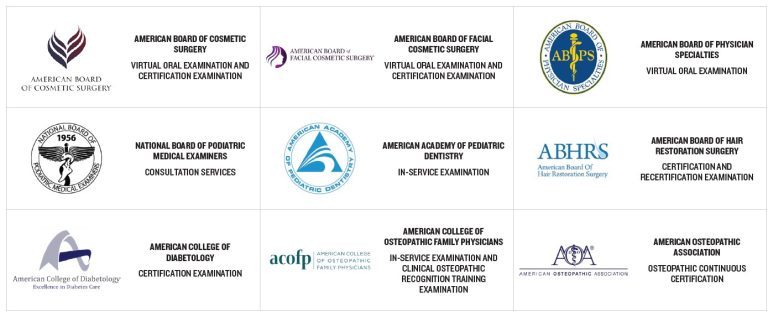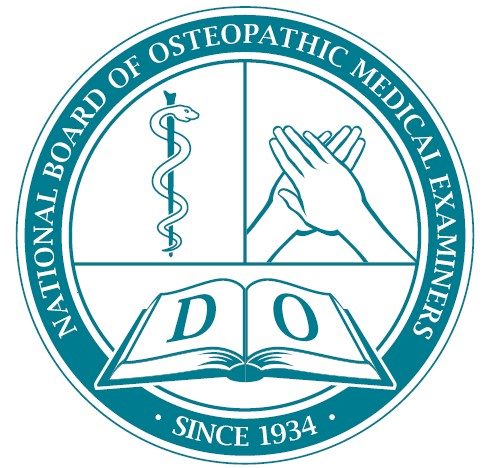The NBOME at 90 Years: A Legacy of Trust
Annual Report 2024
Navigation
Chair’s and President’s Message
On 90 Years and the Legacy of Trust
Merriam-Webster defines trust as an “assured reliance on the character, ability, strength, or truth of someone or something.” Trust was not taken for granted in 1934 when the NBOME was founded by leaders of the osteopathic medical profession as the National Board of Examiners for Osteopathic Physicians and Surgeons (NBEOPS), nor has it been taken for granted since. In the words of legendary tennis champion and civil rights activist Arthur Ashe, “Trust has to be earned, and should come only after the passage of time.”
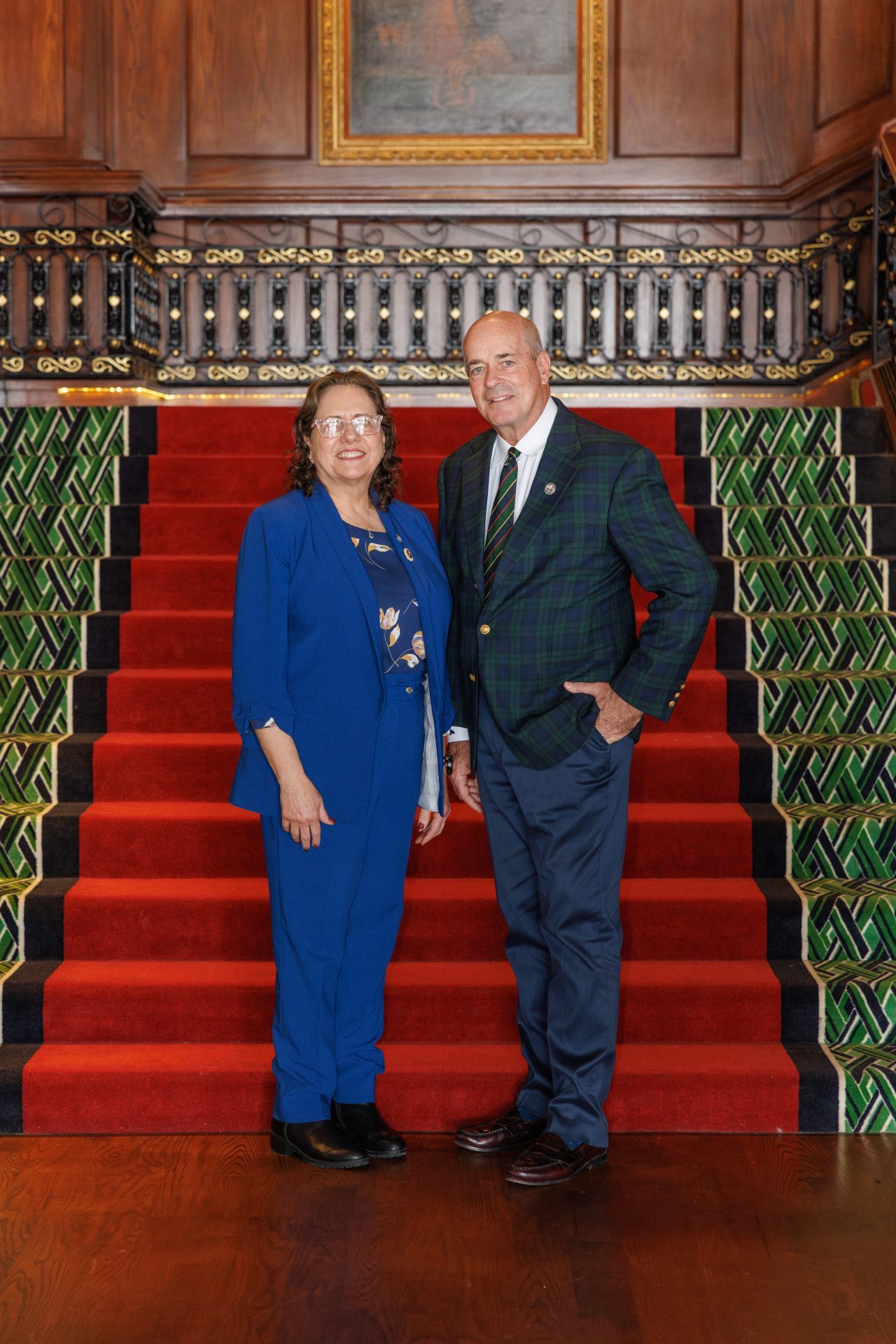
Over the following 90 years, a legacy of trust was continually earned based on making choices, demonstrating integrity and reliability, serving others, and always putting patients first via high quality assessment of competencies for the practice of osteopathic medicine and related healthcare professions. In 2024, the NBOME celebrated that legacy, and also looked ahead on how to continue earning that trust over the next 90 years.
Working together with engagement and support from stakeholders that include the American Osteopathic Association, the American Society of Osteopathic Medical Regulators, the American Association of Colleges of Osteopathic Medicine, the Commission on Osteopathic College Accreditation, the Federation of State Medical Boards, osteopathic medical students and residents, and numerous others, we endeavor every day, year after year, to exceed ordinary expectations.
Enhancing the test-taking experience for students and residents, largely through innovations in the COMLEX-USA licensure examination program, remains paramount, and decisions made in 2024 will ensure a valid, reliable, and fair assessment while introducing changes to reduce time pressures and time away to test.
More 2024 highlights included increasing formative assessments for learning through the COMSAE, WelCOM, and COMAT programs to benefit osteopathic medical students and residents. The NBOME also expanded COMAT Foundational Biomedical Sciences eligibility to learners in related health care professions at schools and colleges of osteopathic medicine (COMs). Finally, in alignment with our strategic goal, “Test What Matters,” and in partnership with several COMs, we have made progress in a national clinical skills assessment via the Core Competency Capstone for DOs initiative.
With major changes in medical education and in our world, the NBOME embraces agility to meet our mission and continues to earn that trust as the health care environment shifts and patient needs evolve.
We are proud of the opportunity to continue to earn your trust. Thank you for taking the time to review our Annual Report and the impact the NBOME has had on our profession, in our community, and across the globe.
Lori A. Kemper, DO, MS
Board Chair
John R. Gimpel, DO, MEd
President and Chief Executive Officer
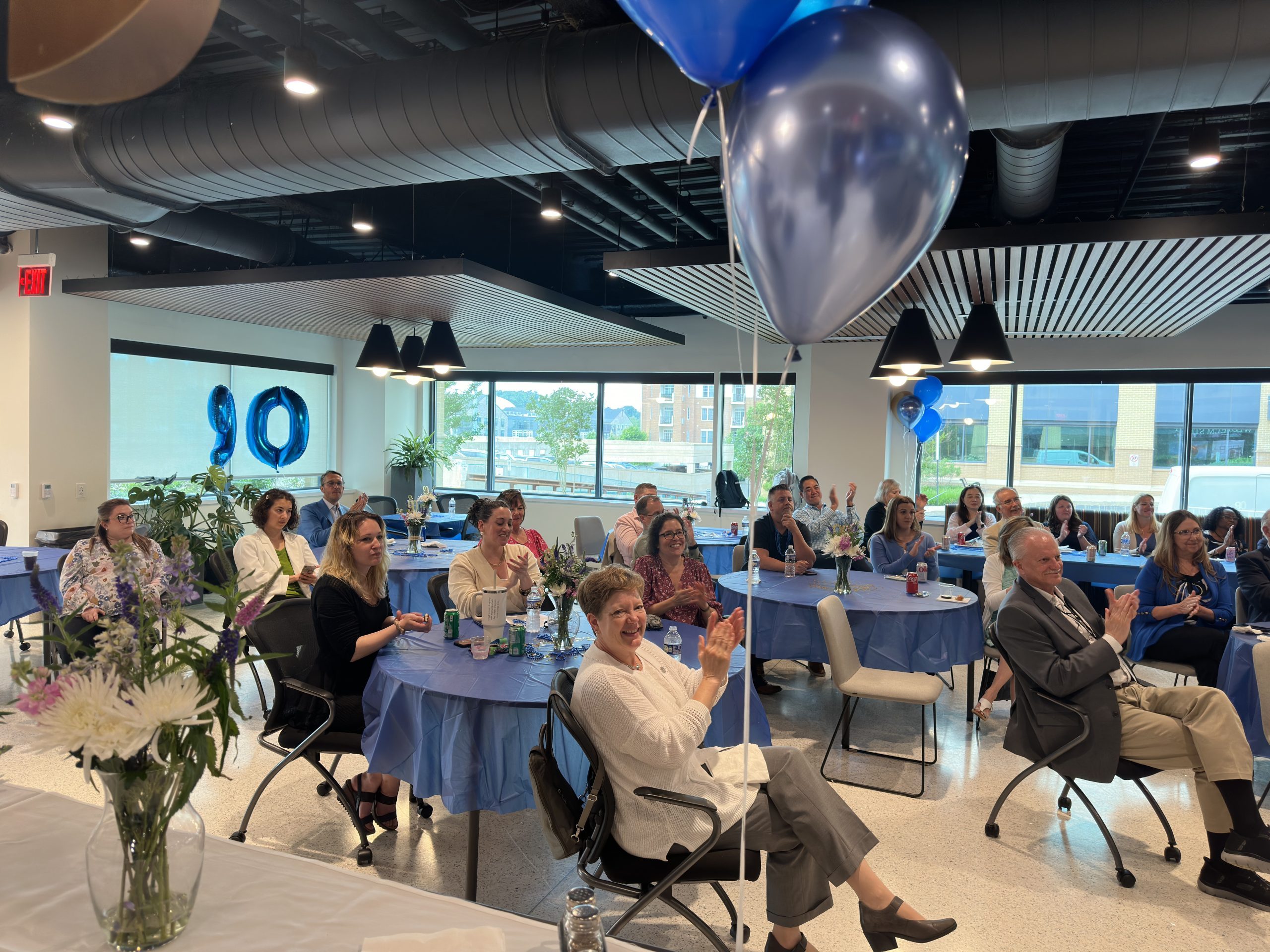
Celebrating Our History
Celebrating 90 Years
The NBOME celebrated its 90th anniversary in 2024. Here we look back at some of the individuals who helped shape the NBOME into what it is today.
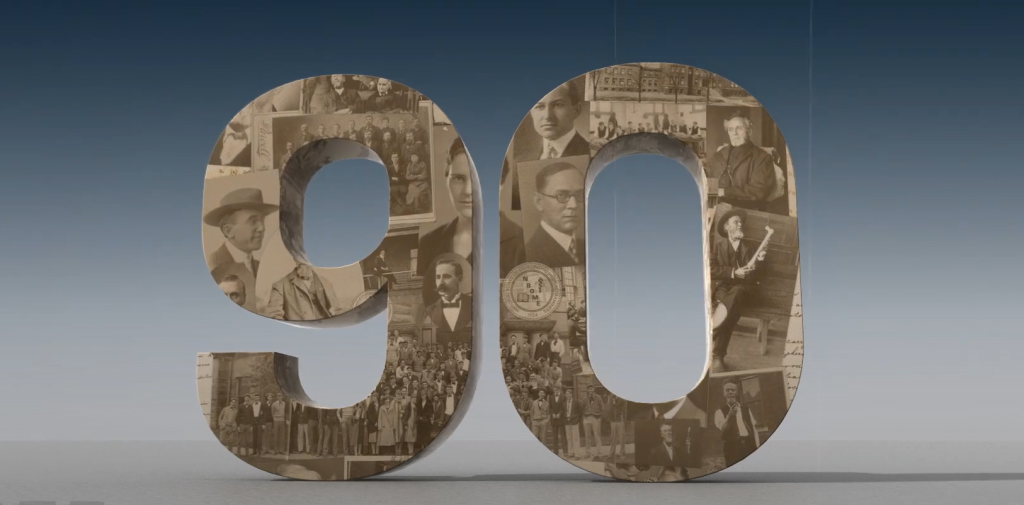
The National Board of Osteopathic Physicians and Surgeons (NBEOPS) was formed in 1934 at a time in U.S. history, and in the field of medicine, where great change was needed. In the midst of the country’s largest financial crisis to date, Congress had just enacted the Securities Exchange Act to provide oversight to financial markets. Lack of regulation of these markets contributed to the Stock Market Crash of 1929, jumpstarting the Great Depression.
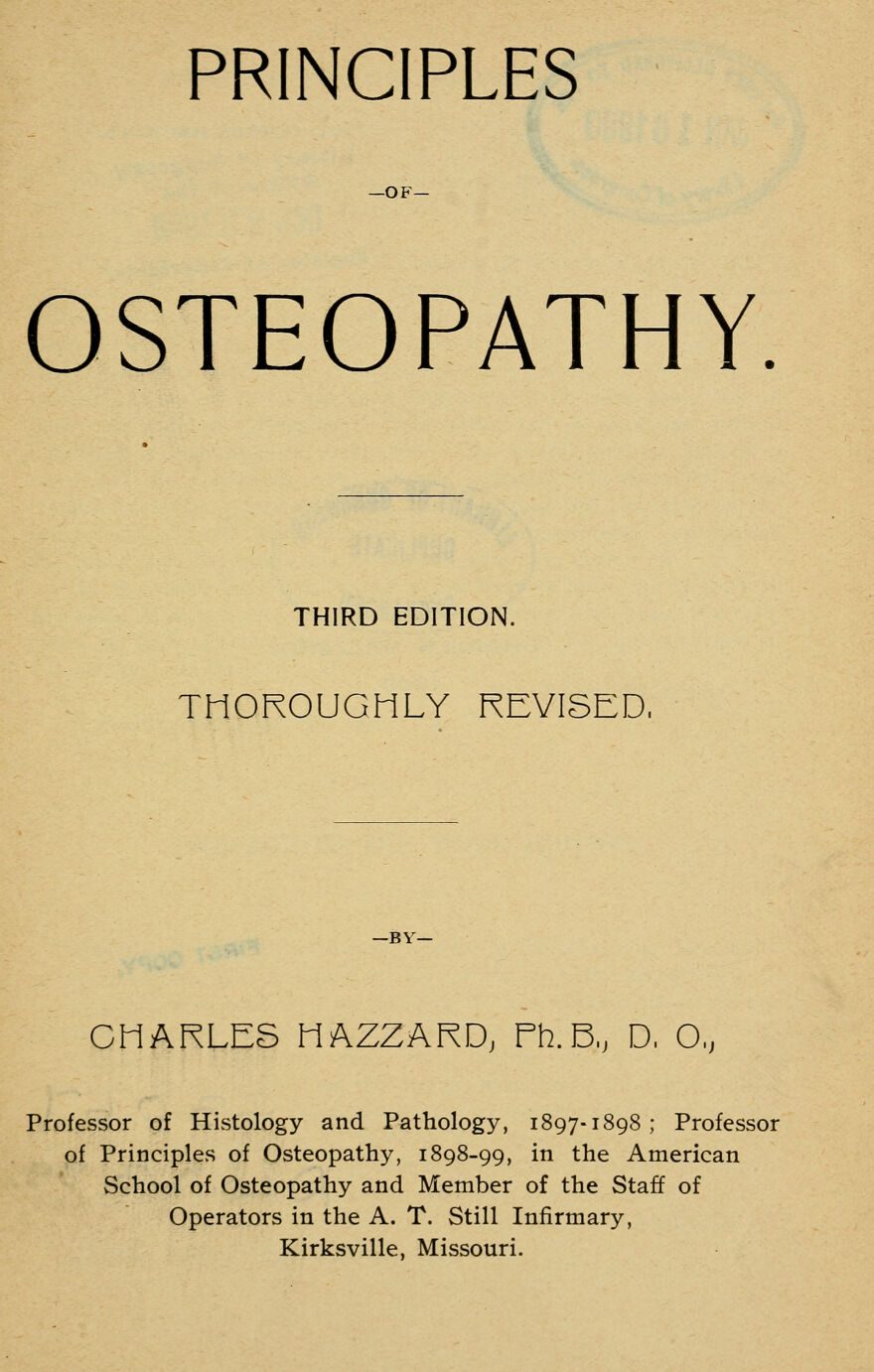
At the same time, like those financial markets, medical licensure in the U.S. was highly variable. Osteopathic licensing boards were often unwelcome in medical regulation, and osteopathic physicians (DOs) encountered varying obstacles for full, unrestricted licensure in many states.
As a result, several DOs outlined a vision and rationale for why strong professional self-regulation for the osteopathic medical profession was critically important for building patients’ trust, for future growth and success of the profession, and to secure the young profession’s distinctive contribution to health care.
The actions of these individuals acknowledged osteopathic medicine’s social contract with patients and led to the formation of the NBEOPS from its precursor, the Association of Osteopathic Examining Boards.
Building the Trust
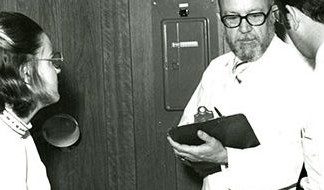
Since then, through its work with colleges of osteopathic medicine, its peer organizations, and individual state medical and osteopathic medical licensing boards, the NBOME has continued to develop and administer assessments that ensure osteopathic physicians are qualified to deliver safe and effective osteopathic medical care to their patients.
The NBOME’s National Faculty, with nearly 950 members, has grown over the years and has become essential to the development and continuous quality assurance for assessments that are valid, reliable, defensible, and fair.
The NBOME continues to evolve its assessments with the changing practice of osteopathic medicine. This includes a thorough review of the COMLEX-USA Blueprint in 2024, and the launch of Phase 2 of the Core Competency Capstone for DOs pilot.
Honoring our Past, Looking Forward
At the NBOME Board of Directors midyear meeting In June, the NBOME honored those who made a difference in the organization and the osteopathic medical profession throughout its history. Events included a celebratory dinner that honoring influential figures from NBOME history, a special presentation on the NBOME’s history, and a panel discussion on the evolution of the NBOME
Additional initiatives to celebrate NBOME’s 90 years throughout 2024 included “90 Years, 9 Voices,” a video series of interviews with NBOME Board members past and present, and a 90th video tribute.
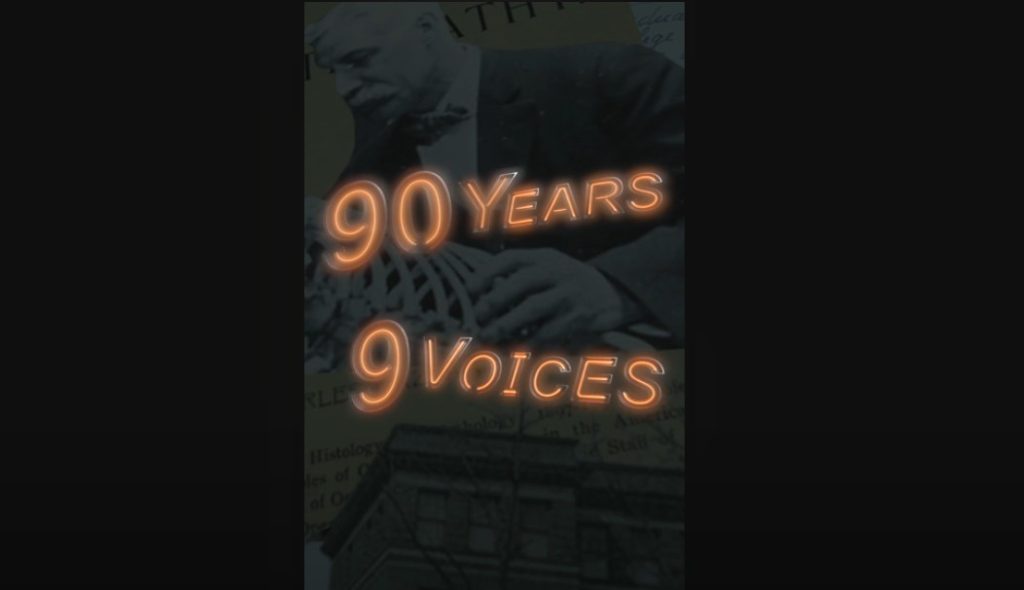
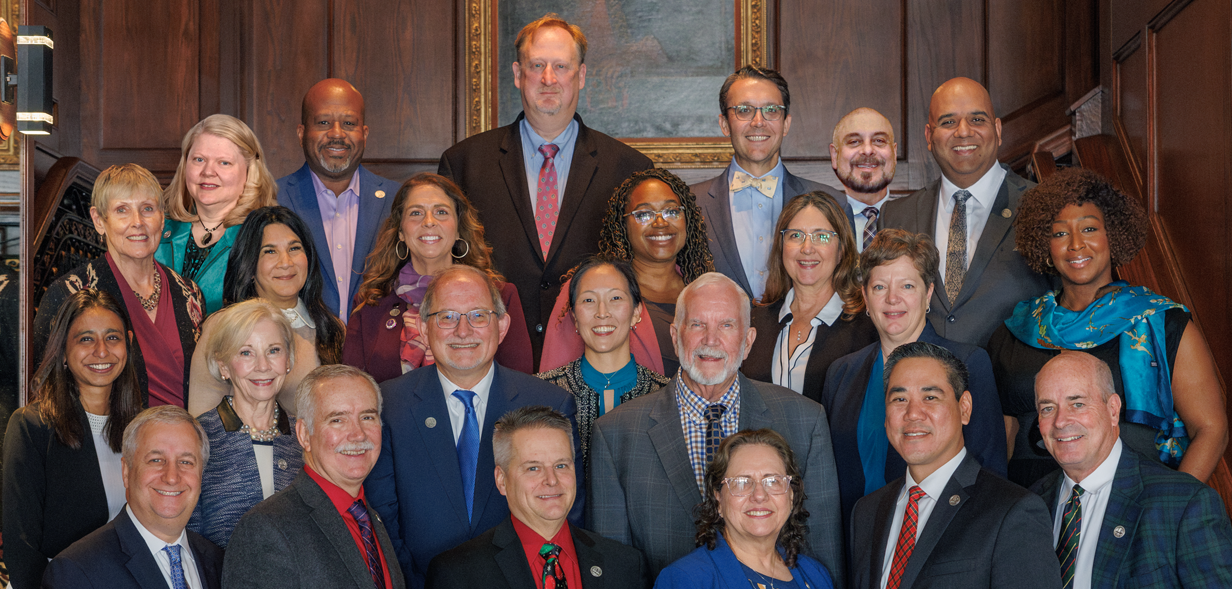
Who We Are
Board of Directors 2024
The volunteer NBOME Board of Directors is comprised of osteopathic physicians and public members. Board members are elected based on experience and expertise in clinical disciplines, medical education and assessment, and medical or regulatory administrative experience reflective of the needs of the public.
Executive Committee
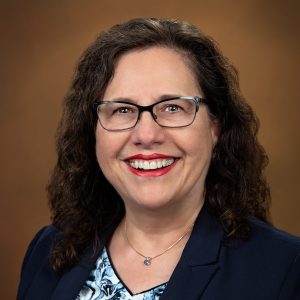
Lori A. Kemper, DO, MS
Board Chair
Glendale, Arizona
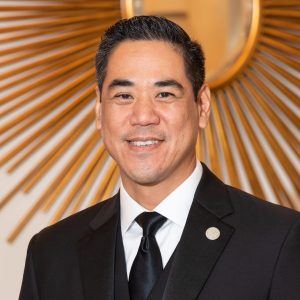
David Kuo, DO
Board Vice-Chair
Blue Bell, Pennsylvania
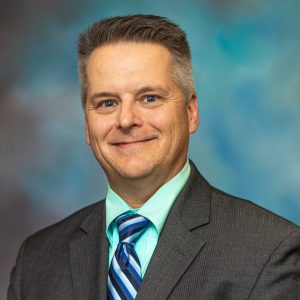
John L. Goudreau, DO, PhD
Board Secretary-Treasurer
East Lansing, Michigan
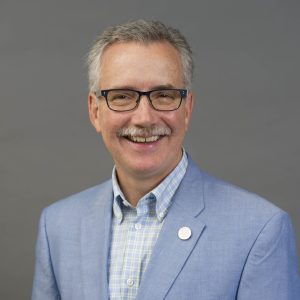
Richard J. LaBaere II, DO, MPH
Immediate Past Chair
Ortonville, Michigan
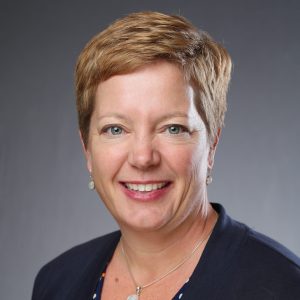
Elizabeth McMurtry, DO
Walla Walla, Washington
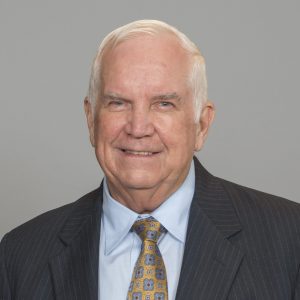
Donald H. Polk, DO
Waynesboro, Tennessee
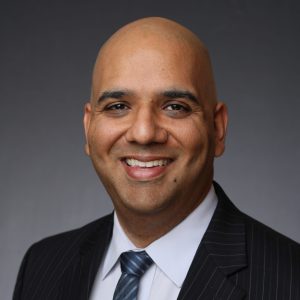
Sajid A. Surve, DO
Flower Mound, Texas
Board of Directors
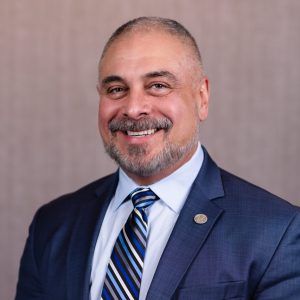
Juan F. Acosta, DO, MS
Smithtown, New York
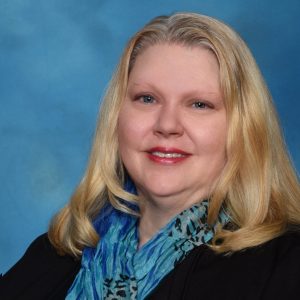
Sheri L. Clarke, PhD
East Lansing, Michigan
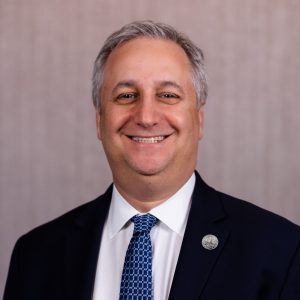
David A. Forstein, DO
Parker, Colorado
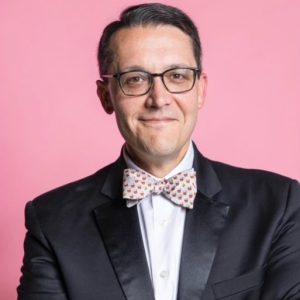
Gregory E. Harris, DO
Rome, Georgia
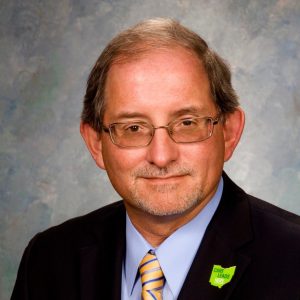
Robert W. Hostoffer, DO, MBA, MEd
Mayfield Heights, Ohio
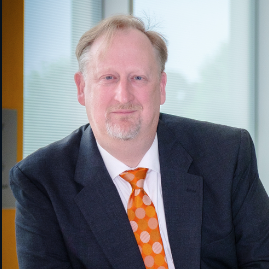
Brian A. Kessler, DO
Fuquay Varina, North Carolina
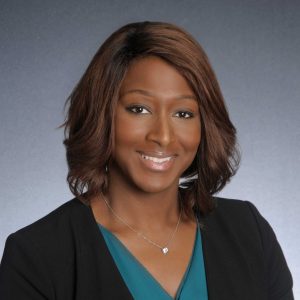
Brookshield Laurent, DO
Jonesboro, Arkansas
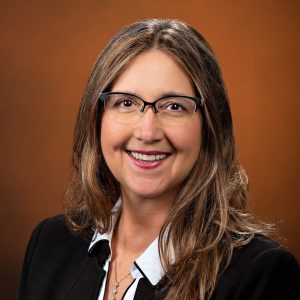
Tracy O. Middleton, DO
Glendale, Arizona
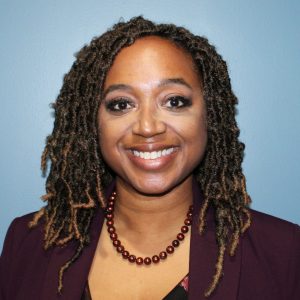
Janie L. Myers, DO
Terre Haute, Indiana
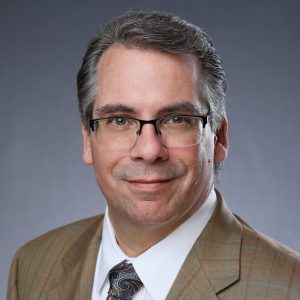
Robert G. G. Piccinini, DO
Sterling Heights, Michigan
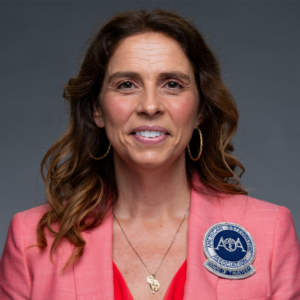
Julieanne P. Sees, DO, MBA
Blackwood, New Jersey
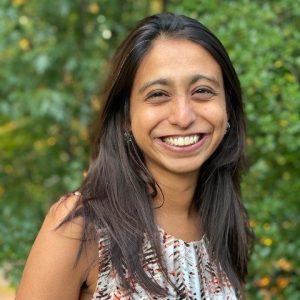
Mousumi Som, DO, MS
Tulsa, Oklahoma
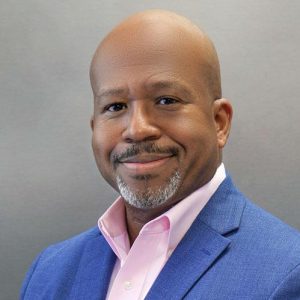
David J. Stephen, DO
Auburn, Alabama
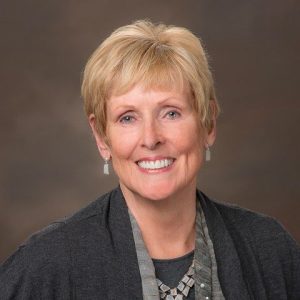
Barbara E. Walker, DO
Kure Beach, North Carolina
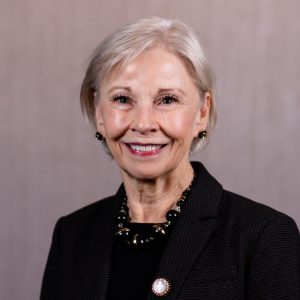
Sherri L. Wise, CPA
Tulsa, Oklahoma
2024 Board Demographics
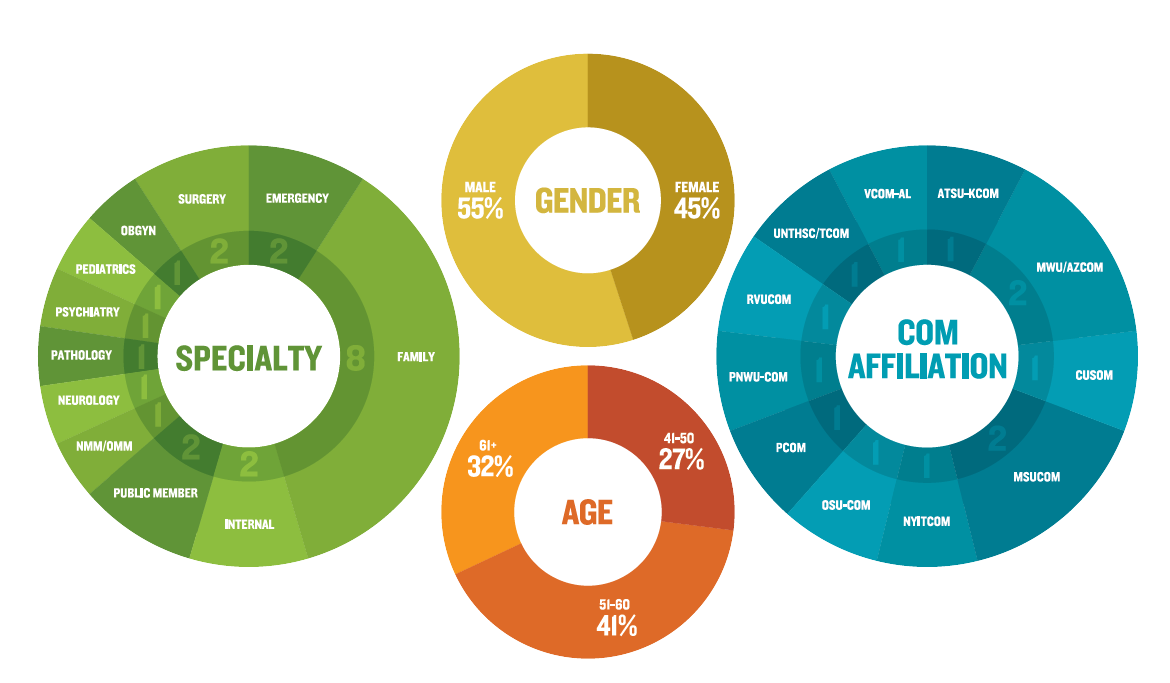
Board Member Transitions
The NBOME strives to include members to represent the changing face of osteopathic medicine. With these new appointments, women now comprise over half of the Board of Directors.
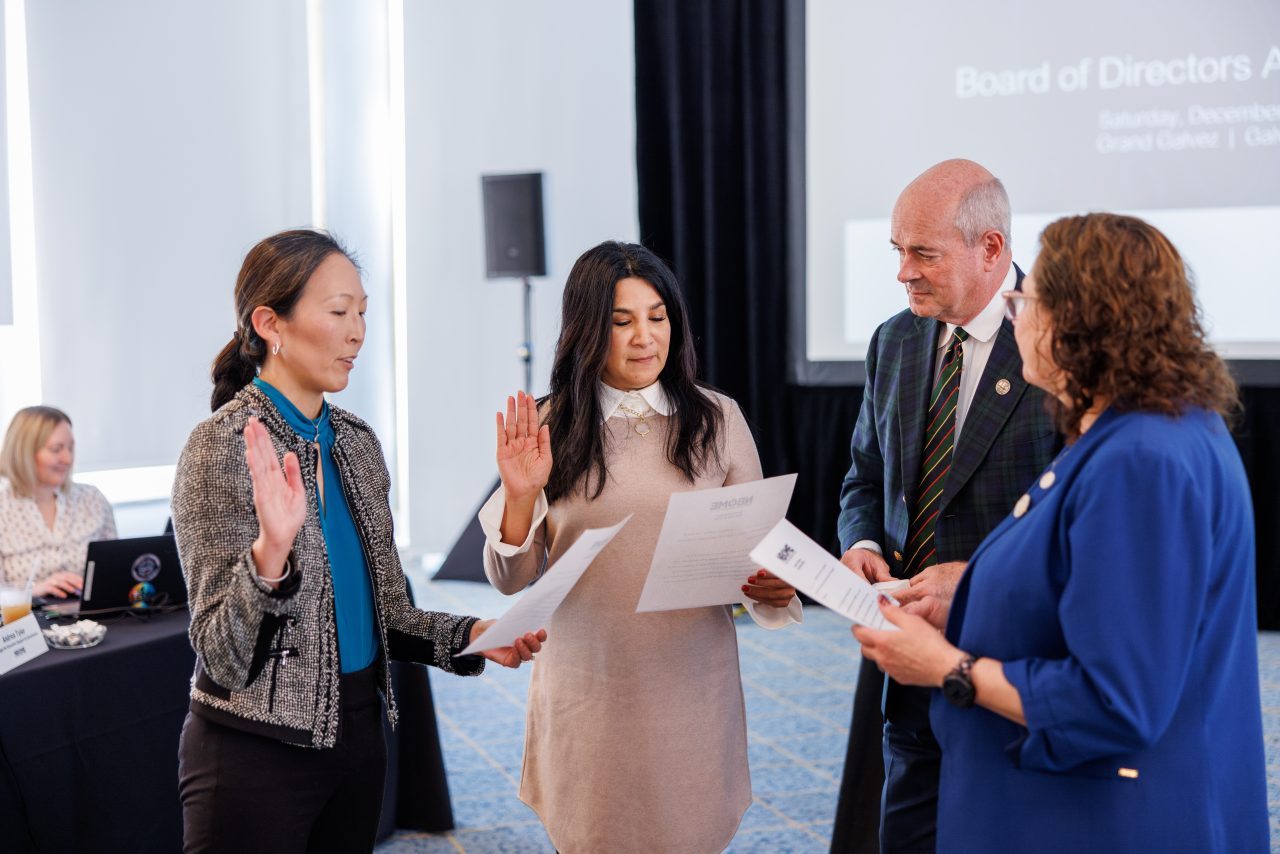
At its annual December meeting, the NBOME Board of Directors welcomed two new members: Furhut R. Janssen, DO, and Jennifer Y. Kendall, DO. Janssen is the medical director for Community Mental Health for Central Michigan and a clinical assistant professor of psychiatry for Central Michigan University College of Medicine. Kendall is the physical medicine and rehabilitation medical spine lead at the Hennepin Healthcare System in Minneapolis.
The Board also recognized the numerous contributions of Robert G. G. Piccinini, DO, a practicing psychiatrist in Sterling Heights, Mich., who completed his tenure on the Board in December. His service to the NBOME spans roughly 15 years and includes serving as chair of the Audit Committee and vice-chair of the Test Accommodations Committee. He will begin his tenure as president of the American Osteopathic Association in July.
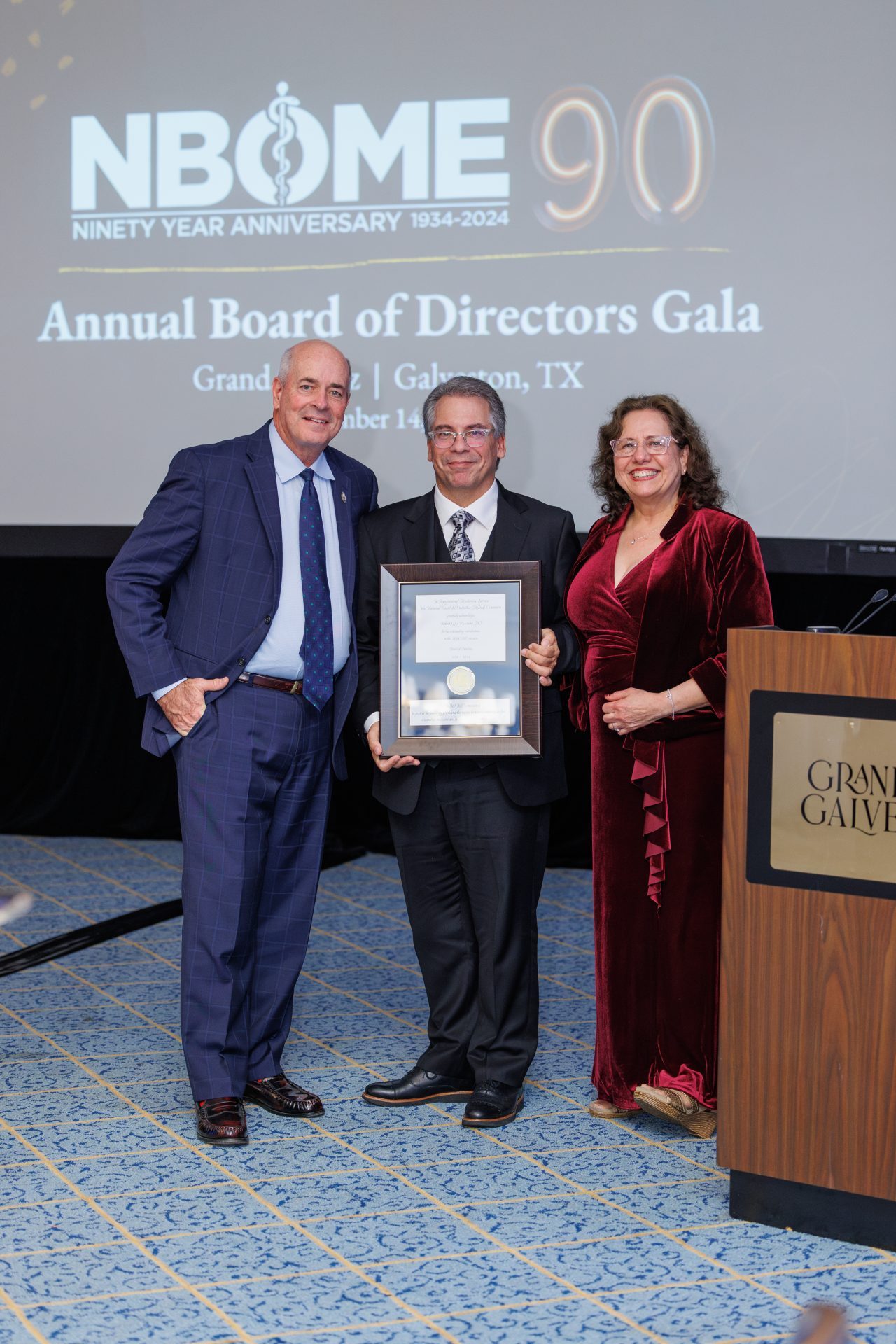
Awards
GME Advocate Kenneth B. Simons, MD, wins Clark Award for Patient Advocacy
Hear some of his acceptance speech from the NBOME Annual Board Meeting in December, 2024.
The NBOME honored Kenneth B. Simons, MD, with the NBOME Clark Award for Patient Advocacy at its annual Board of Directors Gala in December. The NBOME Clark Award for Patient Advocacy recognizes individuals who have demonstrated an outstanding commitment to patient safety, patient protection, and quality of care. Simons is a tireless advocate for medical education and medical regulation.
His exemplary work in graduate medical education, medical regulation and licensure, and advocacy for inclusion and belonging, has served to elevate medical education and practice, thus protecting patients, students, and trainees at all levels of the health care delivery system. His more than 35-year career includes leadership appointments and memberships with the Federation of State Medical Boards as chair (2021-2022), the Accreditation Council for Graduate Medical Education, the National Institutes of Health, the Liaison Committee on Medical Education, and the National Resident Matching Program.
On winning the Clark Award, Simons said, “It is deeply meaningful to be recognized with this, given those values have been at the forefront of my professional life.”
John E. Thornburg, DO, PhD, National Faculty Leadership Award
At its meeting in June, the Board recognized Dennis J. Dowling, DO, MA, with the John E. Thornburg, DO, PhD, National Faculty Leadership Award. Dowling has been affiliated with the NBOME for more than 30 years, with dedication to the assessment of osteopathic principles and the performance of osteopathic manipulative treatment.
Dowling served as the director for osteopathic manipulative medicine assessment for the COMLEX-USA Level 2-PE for almost 20 years and was involved in the initial development of this groundbreaking assessment in the late 1990s-2000s.
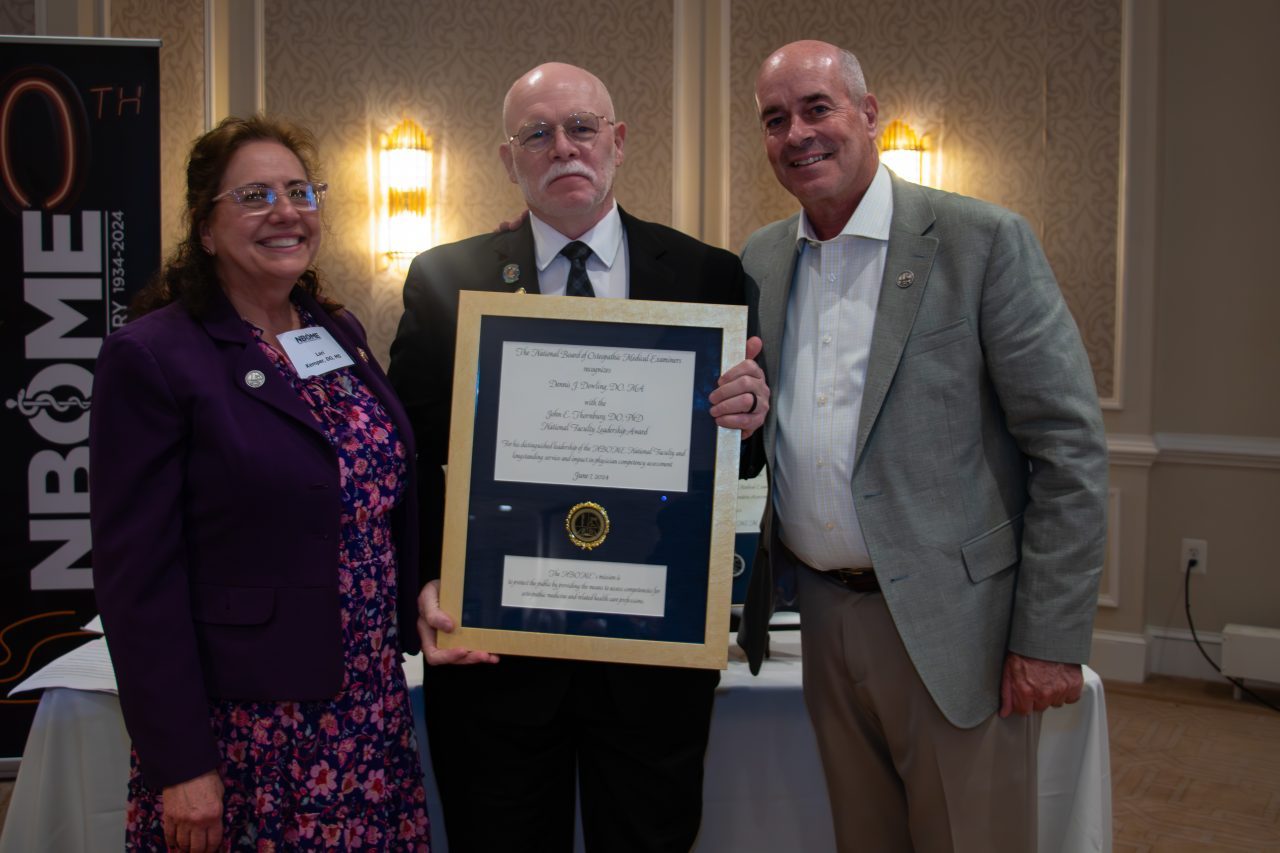
He has also been instrumental in shaping the future of osteopathic assessment through his participation in the Special Commission on Osteopathic Medical Licensure Assessment and in his current role as the consulting coordinator for the Core Competency Capstone for DOs (C3DO) pilot and chair of the C3DO Task Force.
The Thornburg Award is bestowed periodically to National Faculty leadership members who have distinguished themselves by their longstanding contributions to examination development, committee work, or related activities. It is named for longtime National Faculty Chair John E. Thornburg, DO, PhD, who diligently served the NBOME in numerous capacities for five decades.
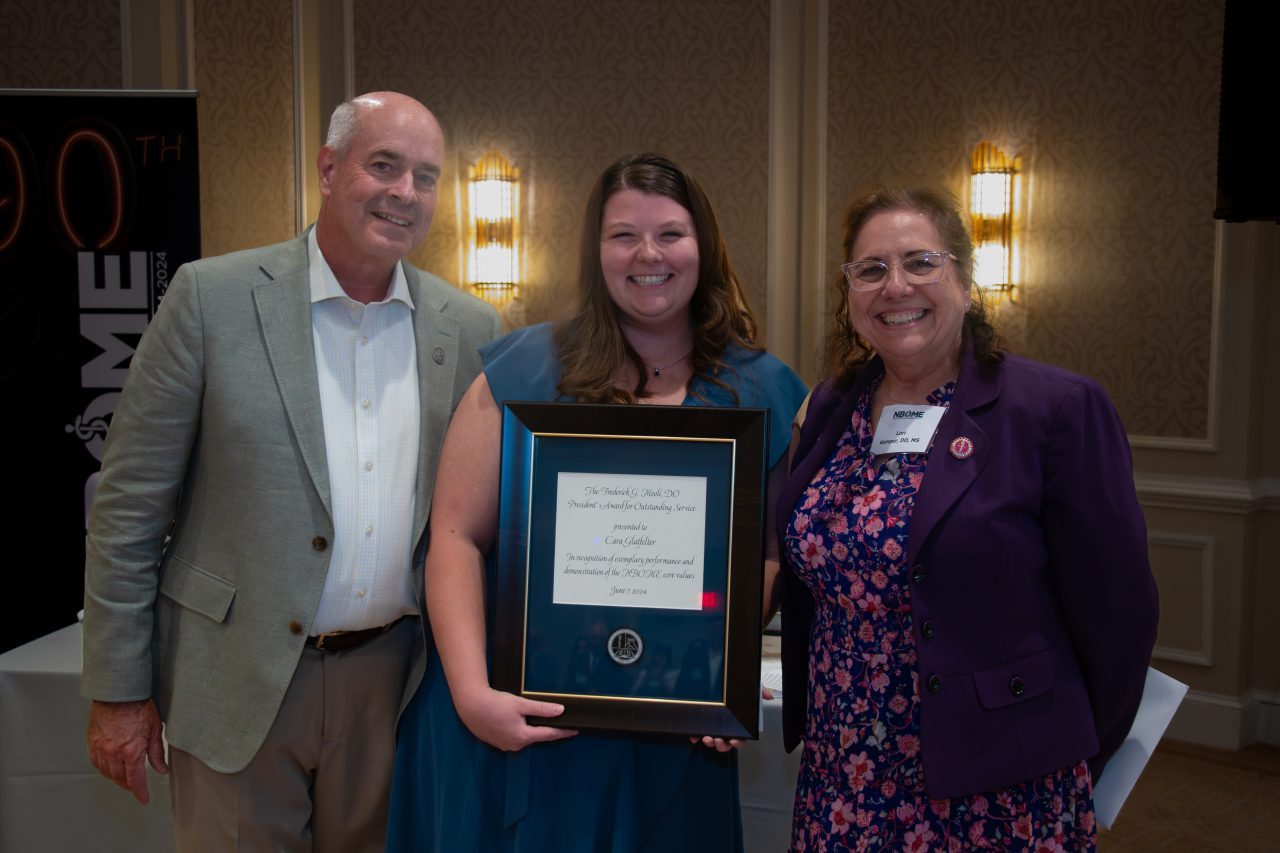
Frederick G. Meoli, DO, President’s Award for Outstanding Service
Also at the June meeting, Cara Glatfelter was honored with the Frederick G. Meoli, DO, President’s Award for Outstanding Service, which recognizes employees who have demonstrated exemplary performance of activities, directly related to the NBOME Core Values, that are above and beyond the scope of assigned responsibilities. During her 7-year tenure with the NBOME, Glatfelter has served in many roles, including administrative assistant and exam administrator for COMLEX Level 2-PE, and as communications coordinator. She currently serves as communications specialist in the division of Professional Development Initiatives and Communications.
Special Recognition
Special recognition was also given in June to two recently retired members of the NBOME Executive Leadership: Sandra Waters, MEM, and Joseph Flamini, MBA, for their years of service and impact.
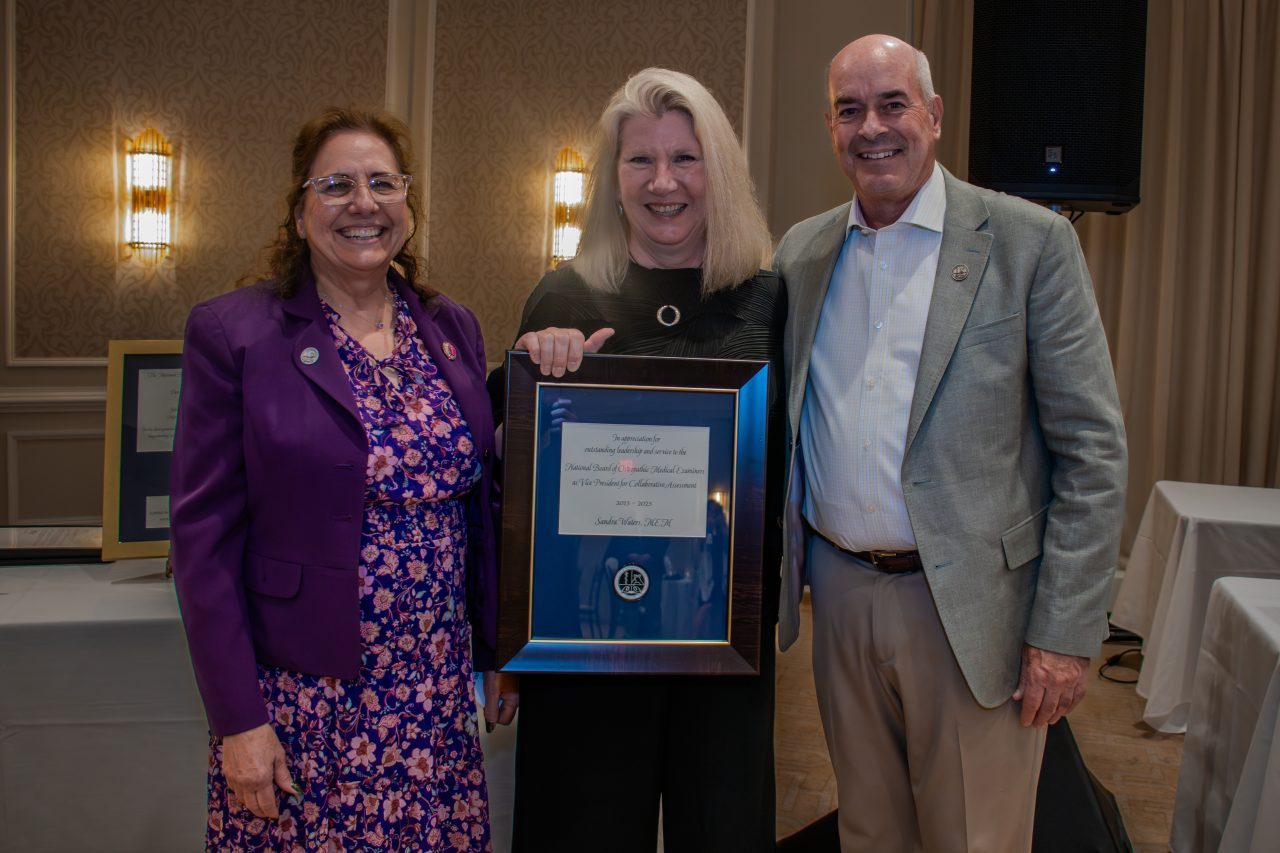
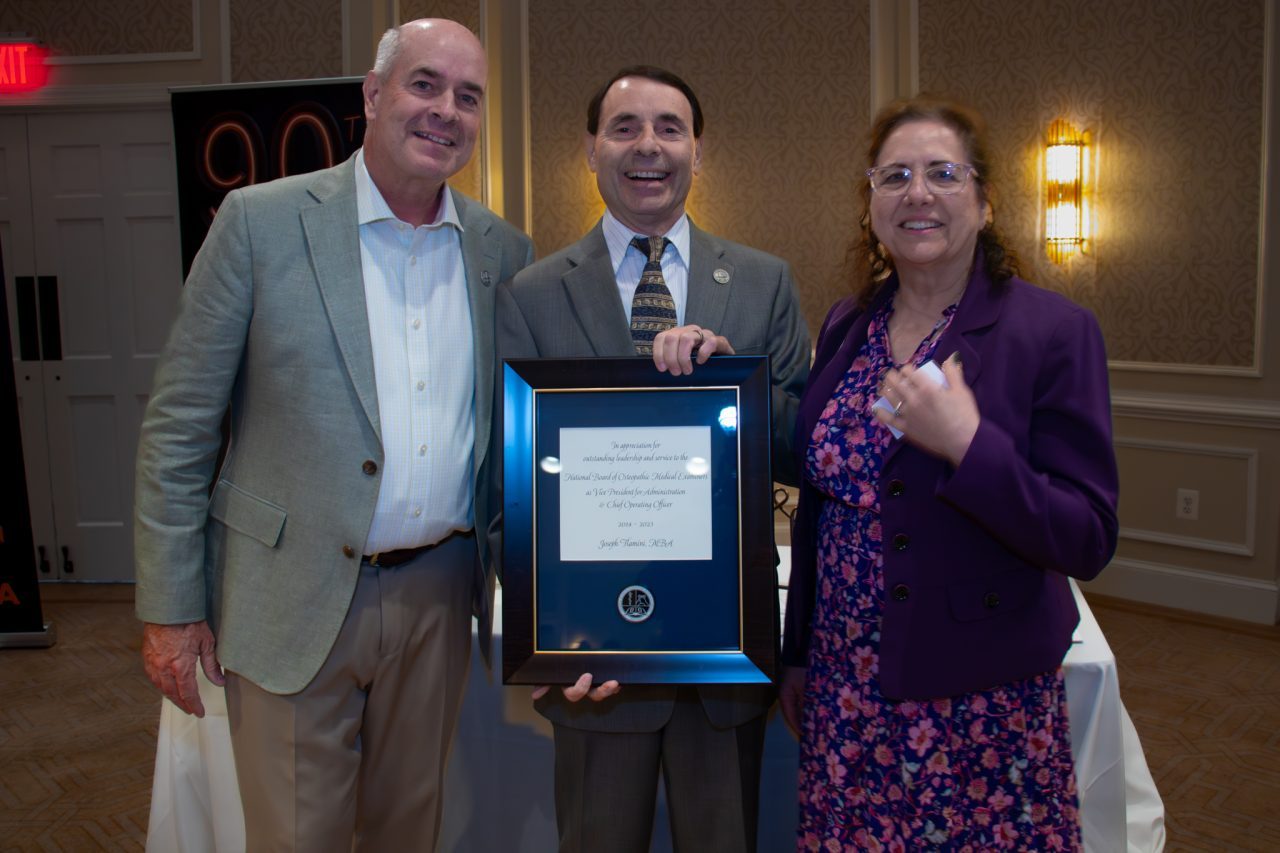
National Faculty
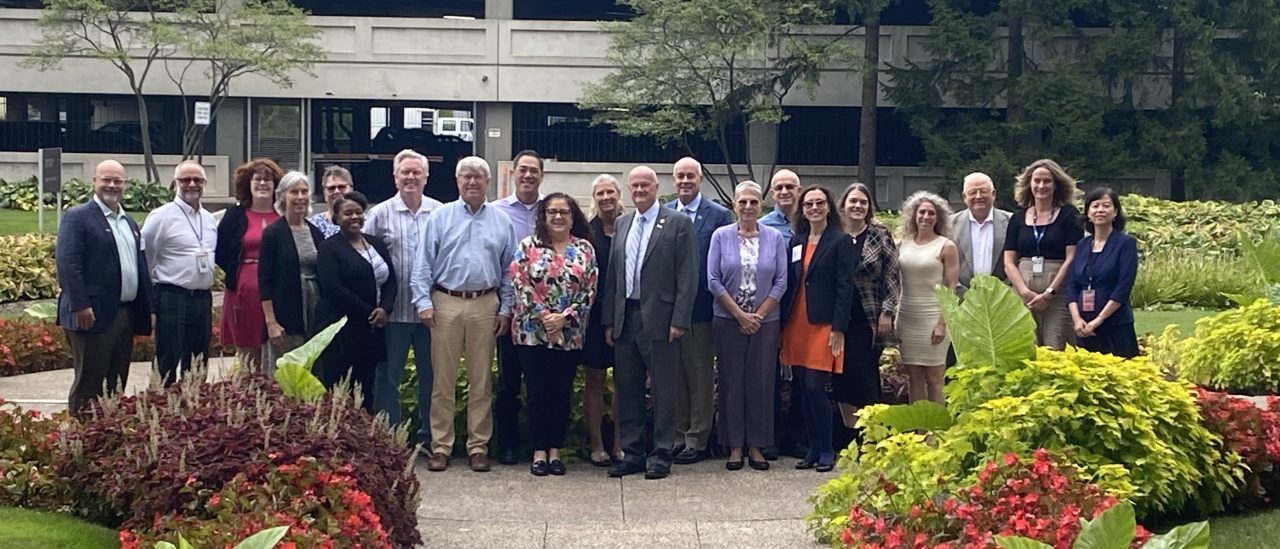
The National Faculty is critical to meeting the NBOME’s mission of protecting the public. These thought leaders have diverse expertise in osteopathic health professions and specialties, osteopathic medical education and assessment, and osteopathic physician licensure and regulation. Balancing their own practice and professional activities, this esteemed group of volunteers commit their time to serving the osteopathic profession.
The National Faculty’s recruitment efforts led to 106 newly credentialed members in 2024—a 12.6 percent increase over 2023. Of note was an 18 percent increase among areas of highest need: obstetrics and gynecology, pediatrics, psychiatry, and surgery. The National Faculty also appointed 10 new Chairs in 2024, and honored several Item Contributors of the Year.
Demographics
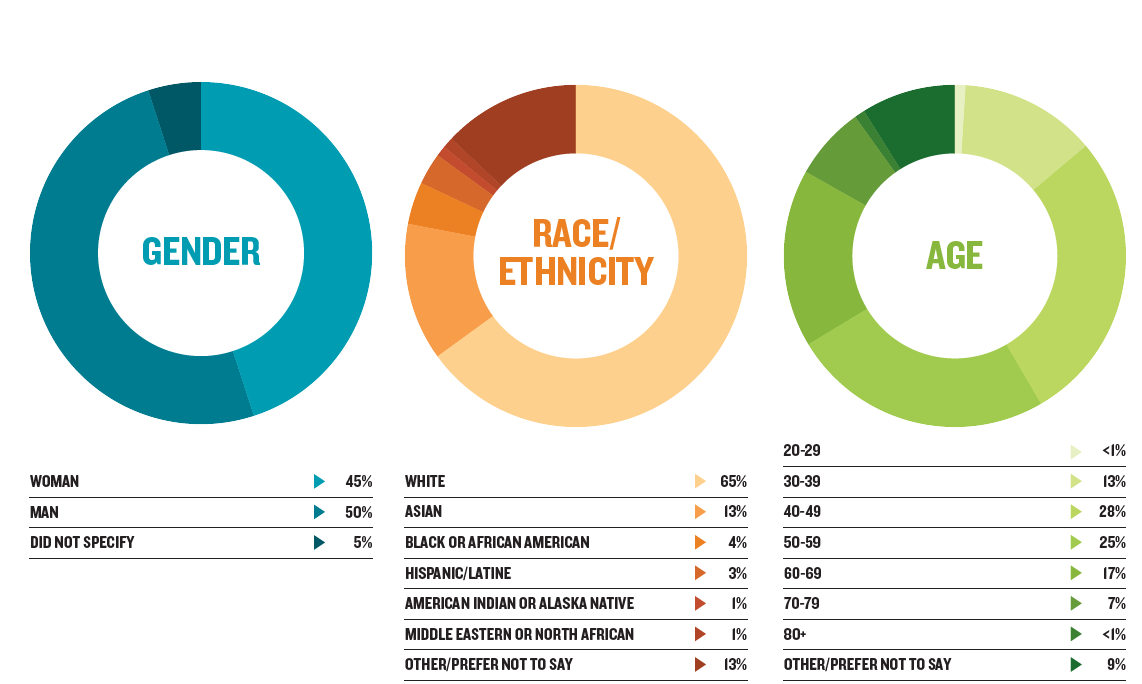
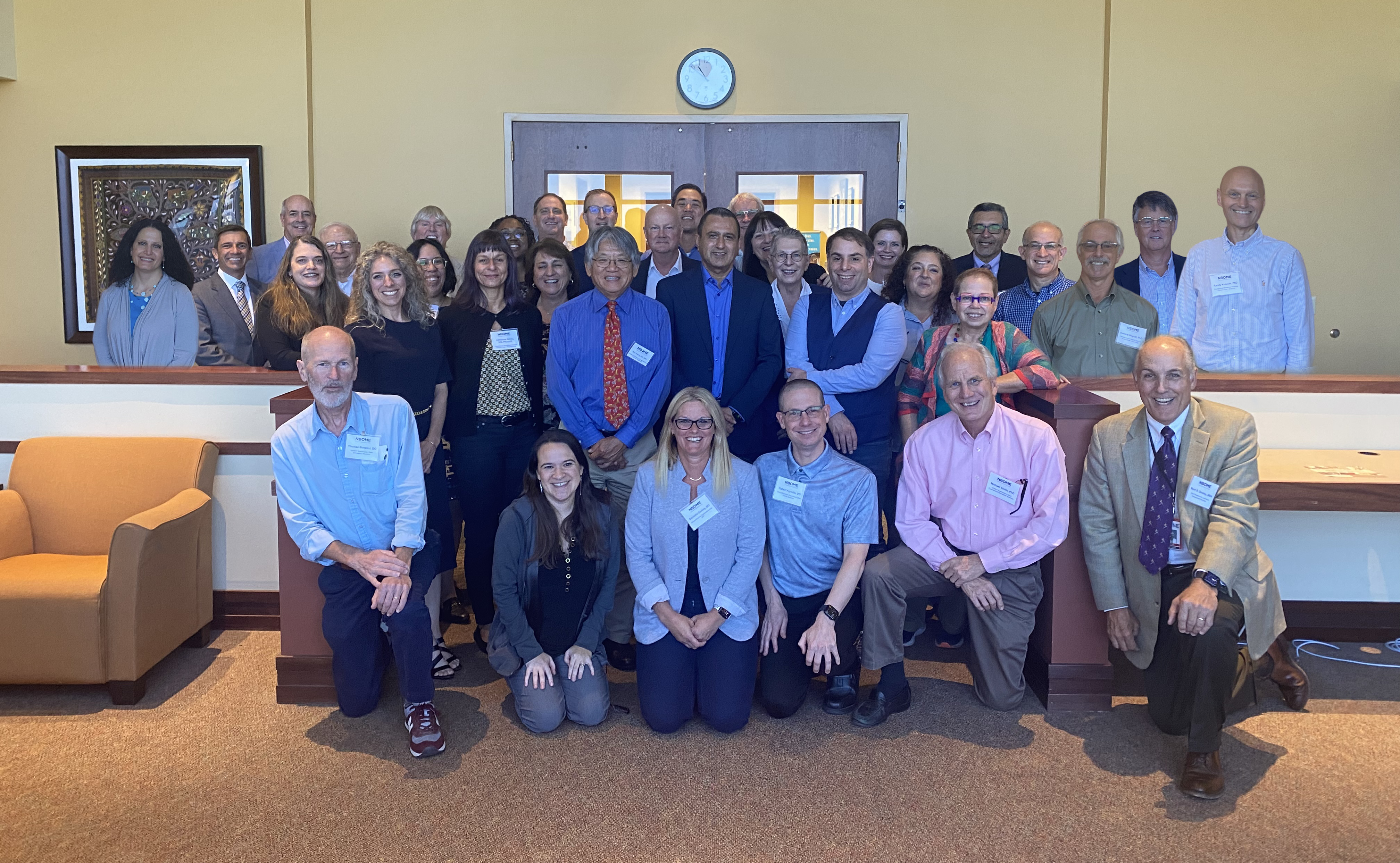
Test What Matters
COMLEX-USA
COMLEX-USA is the only licensure examination series designed to assess competencies in osteopathic medicine and accepted by all state licensing boards in the United States and many international jurisdictions.
COMLEX-USA Chairs 2024
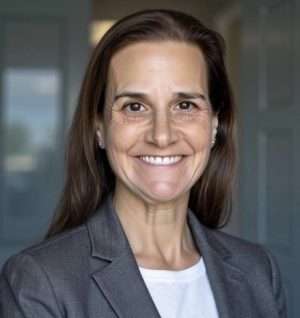
Joyce A. Brown, DO
COMLEX-USA Level 1
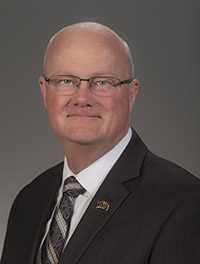
Wayne R. Carlsen, DO
COMLEX-USA Level 2-CE
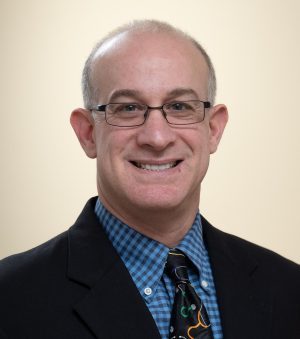
Brett Stecker, DO
COMLEX-USA Level 3
COMLEX-USA Blueprint
The COMLEX-USA Blueprint details the content that is assessed throughout the COMLEX-USA examination series. The Blueprint Subcommittee (BPSC), consisting of 21 members from various specialties, continuously reviews the COMLEX-USA Blueprint to ensure currency of the COMLEX-USA Blueprint and exam content. After a nearly year-long review and research process, the BPSC, led by Chair Wayne R. Carlsen, DO, recommended several changes for 2025, including updated terminology that is more mindful and inclusive and adjusting the way that some information is displayed in Competency Domains and Clinical Presentations. These updates were approved by the Board of Directors in December 2024, and are reflected in the current Blueprint.
These updates further elucidate the body-mind-spirit philosophy of osteopathic care by detailing issues related to bias, health care inequity, and social determinants of health and respect for each patient’s perspective and lived experience. This includes strategies such as tailoring care plans to each individual’s unique circumstances and needs and creating a shared decision-making process that incorporates the patient, their family, and their support community.
COMLEX-USA Blueprint Updates
Blueprint Subcommittee Chair Wayne R. Carlsen, DO, discusses the latest updates to the COMLEX-USA Blueprint.
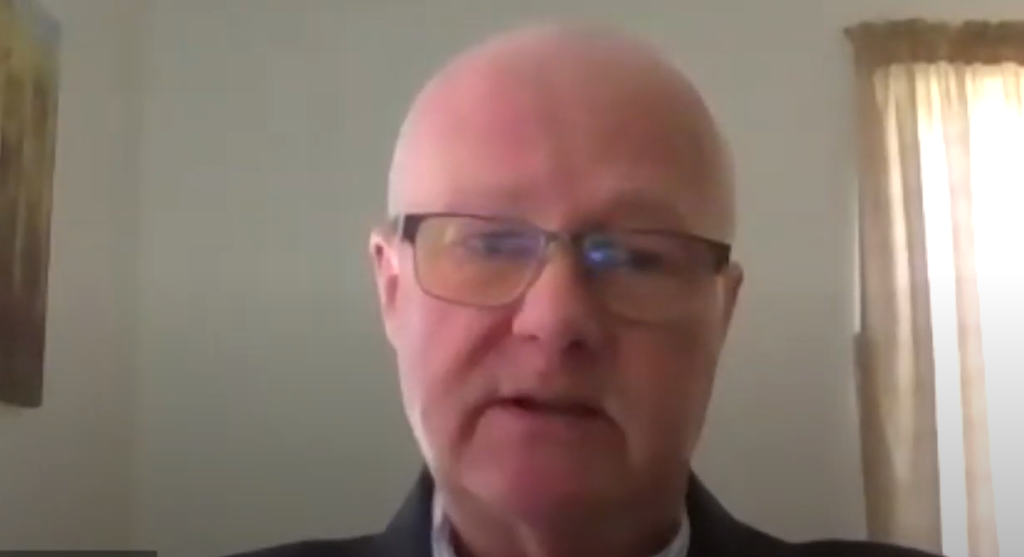
Upcoming Enhancements
In December 2024, the NBOME announced upcoming enhancements to the COMLEX-USA examination series, continuing its dedication to valid, reliable, and fair assessment of competencies for osteopathic medicine while also considering the well-being of stakeholders including osteopathic medical students and residents, residency and fellowship program faculty, faculty at colleges of osteopathic medicine, state licensing boards, and patients.

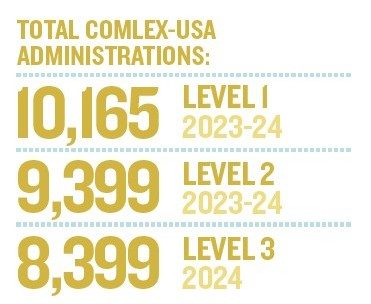
COMLEX-USA Administration
COMLEX-USA examinations continue to be administered at Pearson VUE test centers, and test-taker satisfaction remains high.

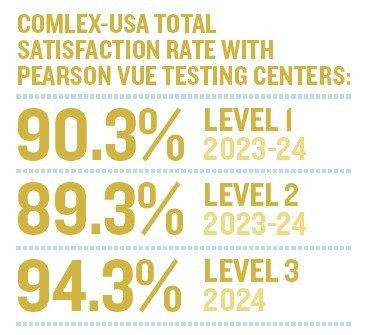
Candidate Satisfaction with Pearson Vue Testing Centers
Most candidates said they appreciate the access to convenient testing sites, per candidate surveys, and both organizations are collaborating to address the anticipated demand for testing seats that will be created by additional colleges of osteopathic medicine.

COMLEX-USA Exam Performance
| LEVEL 1 EXAM PERFORMANCE | 2023-24 MAY 2023 – APR 2024 | 2022-23 MAY 2022 – MAR 2023 | 2021-22 MAY 2021 – APR 2022 | |
| 1ST TIME TEST TAKERS | 9,222 | 8,798 | 8,089 | |
| 1ST TIME PASS RATES | 93.0% | 90.6% | 92.2% | |
| LEVEL 2-CE EXAM PERFORMANCE | 2023-24 JUN 2023 – APR 2024 | 2022-23 JUN 2022 – APR 2023 | 2021-22 JUN 2021 – MAY 2022 | |
| 1ST TIME TEST TAKERS | 8,598 | 7,816 | 7,747 | |
| 1ST TIME PASS RATES | 92.5% | 94.5% | 95.1% | |
| LEVEL 3 EXAM PERFORMANCE | 2024 JAN 2024-DEC 2024 | 2023 JAN 2023-DEC 2023 | 2022 JAN 2022-DEC 2022 | |
| 1ST TIME TEST TAKERS | 7,985 | 7,559 | 7,604 | |
| 1ST TIME PASS RATES | 96.8% | 94.7% | 96.3% |
Total COMLEX-USA administrations: Level 1 (2023-24): 10,165 Level 2 (2023-24): 9,399 Level 3 (2024): 8,399
COMSAE
COMSAE is a three-phase series used by osteopathic medical students and residents to gauge their knowledge base in advance of taking each level of the COMLEX-USA examination series. Each COMSAE Phase is presented in a format and structure that aligns with the corresponding Level of COMLEX-USA.
The NBOME added answer keys to all forms for individual/student purchase for all Phases, in line with feedback from osteopathic medical students wanting an additional resource to help them assess their readiness for COMLEX-USA.
All Phase 1 and Phase 2 COMSAE questions were updated in 2024 with terminology that is more mindful and inclusive, in line with the NBOME Core Value of diversity, equity, and inclusion.
COMSAE Administrations
Overall, the use of COMSAE increased 17 percent in 2024. Of that increase, 32 percent stemmed from the use of Phase 2 individual/student forms.
| PHASE | COM Administrations | Individual Administrations | TOTAL |
| Phase 1 | 20,659 | 5,527 | 26,186 |
| Phase 2 | 12,340 | 7,168 | 19,508 |
| Phase 3 | 7 | 989 | 996 |
| TOTAL | 33,006 | 13,684 | 46,690 |
WelCOM
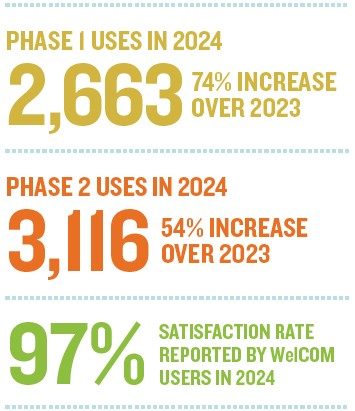
WelCOM is another tool that can be used for self-assessment in advance of taking COMLEX-USA. The WelCOM series comprises two phases, where Phase 1 corresponds to Level 1 and Phase 2 corresponds to Level 2-CE of COMLEX-USA. WelCOM provides test questions that reflect the style and content of COMLEX-USA and provides immediate answers and rationales as to why each answer is correct with references for further study.
COMAT
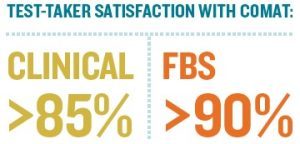
COMAT is a series of nationally standardized subject exams designed to assess osteopathic medical students’ knowledge in core osteopathic medical and foundational biomedical sciences principles.
COMAT Foundational Biomedical Sciences
COMAT FBS Targeted Administrations
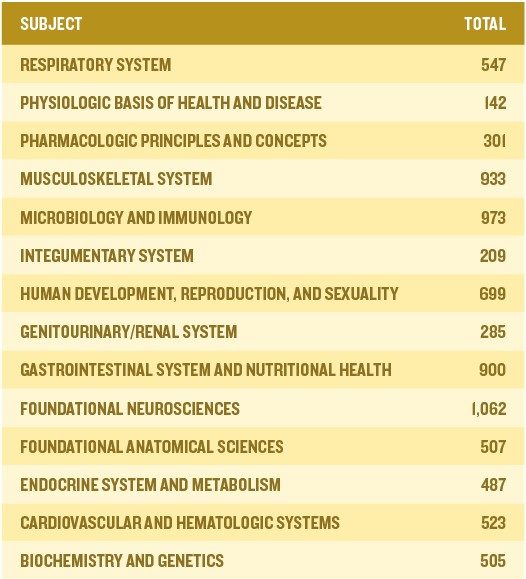
In 2024, the NBOME announced that it would begin offering COMAT Foundational Biomedical Sciences (FBS) examinations for non-DO programs at schools and colleges of osteopathic medicine (COMs). Those include master’s and doctoral level programs in biomedical sciences, podiatric medicine, physician assistant studies, dentistry, and optometry where students in basic sciences study alongside DO students.
These examinations can be used to determine graduate and doctoral candidates’ knowledge of basic biomedical science concepts as they relate to situations and patient presentations encountered in clinical settings. They also show strong correlations with COMLEX-USA Level 1 performance. COMAT FBS for non-DOs is currently available at no charge through August 25, 2025.
The NBOME also offered complementary COMAT-FBS Targeted (FBS-T) forms to COMs from November 2022-August 9, 2024. A total of 18,761 COMAT FBS-T assessments were administered at roughly 50 percent of COMs during the promotion period and that data enabled the NBOME to develop scaled scores. Scaled scores have a specific average and set, which makes it easier for COMs to compare its scores to national FBS-T examination performance within the same time frame.
COMAT Clinical Subjects
COMAT Clinical Subject Administrations
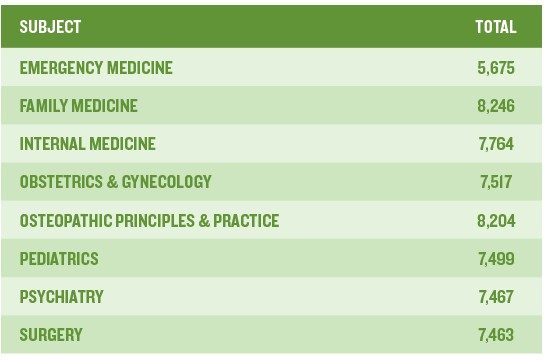
The administration of COMAT Clinical Subject examinations at COMs reached an all-time high in 2024, with 43 COMs out of 46 administering at least one subject. Among those, 34 COMs administered all 8 subjects.
COMAT FBS-Comprehensive Administrations

COMAT-SE
COMAT Self Evaluation (COMAT-SE) is a learning assessment tool for osteopathic medical students to reinforce their medical knowledge and determine any areas needed for additional study in a particular discipline.
Following the positive reception of COMAT-SE for osteopathic principles and practice, the NBOME launched COMAT-SE for internal medicine, family medicine, and pediatrics in November 2024. COMAT-SE is delivered on the NBOME’s CATALYST platform: after responding to each COMAT-SE question, candidates are shown the correct answer in real time, the rationale for why that answer is correct, and additional references for further study.
COMVEX
COMVEX was developed for osteopathic physicians (DOs) who hold or have held a valid license to practice osteopathic medicine in the United States. COMVEX is required or sponsored by state medical licensing boards to ensure a DO can demonstrate current medical knowledge under standardized conditions.
In 2024, the NBOME updated current eligibility requirements for COMVEX to include:
- No more than two attempts in a 12-month period
- Four overall attempt limit by a candidate
- 90-day waiting period to retake an exam
In addition, the NBOME published a COMVEX Sample Examination to help candidates become familiar with the style and content of the examination prior to their testing day.
Core Competency Capstone for DOs
The Core Competency Capstone for DOs (C3DO) is a research initiative seeking to develop a national standardized assessment of osteopathic clinical skills based at schools and colleges of osteopathic medicine (COMs). Phase 2 of C3DO ran throughout 2024 with eight participating COMs administering the pilot activity across nine locations to over 1400 students, a 60 percent increase from Phase 1.
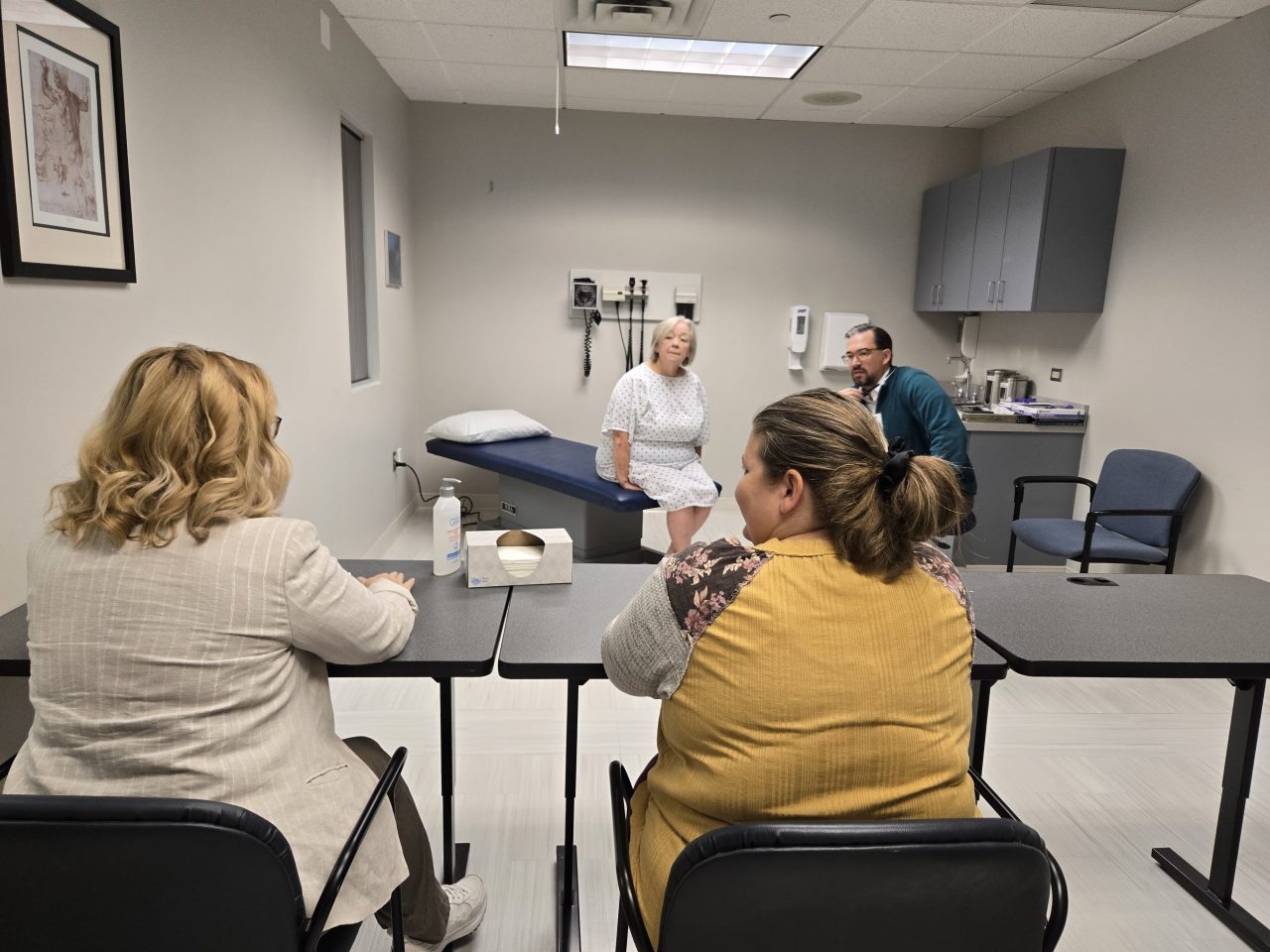
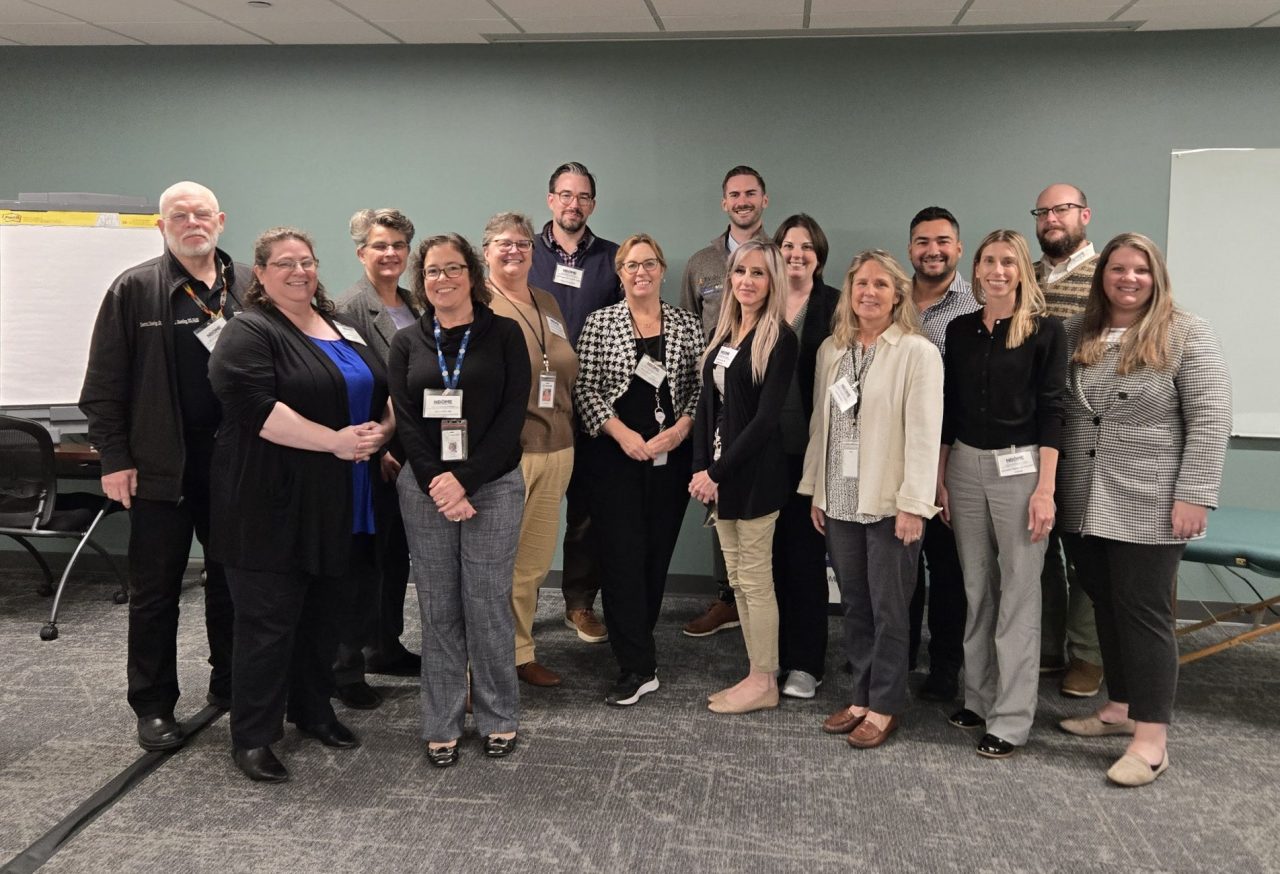
Thanks to the engagement of representatives from over 30 COM locations as pilot participants, committee members, advisory panel participants, case developers, item writers, physician examiners, and more, Phase 2 saw improvements in development, administration, and scoring.
Through the efforts of the partner COMs, Phase 2 was a success, with the COMs all finding that the changes had greatly improved the process. As with Phase 1, collaboration with Phase 2 COMs helped identify opportunities for improvements in Phase 3, including enhancements to case materials, training courses, and resources provided to the COMs. The NBOME Learning Center proved to be a valuable resource for Phase 2 participants, administering training courses and support to 346 users across eight COMs—an increase of 92 percent over 2023.
Phase 3 will see a streamlining of the data and video transfer process, which will further simplify COMs’ administrative efforts.
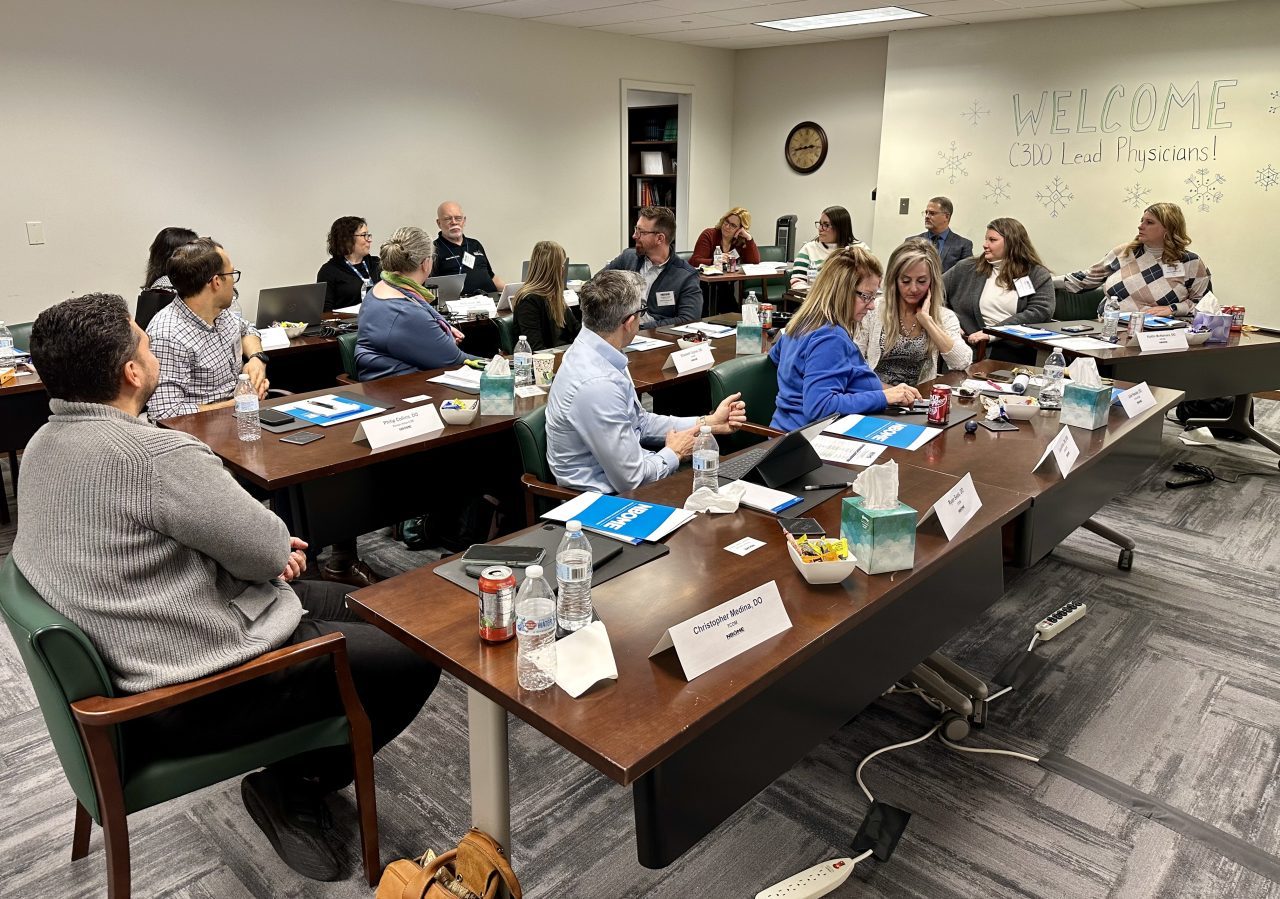
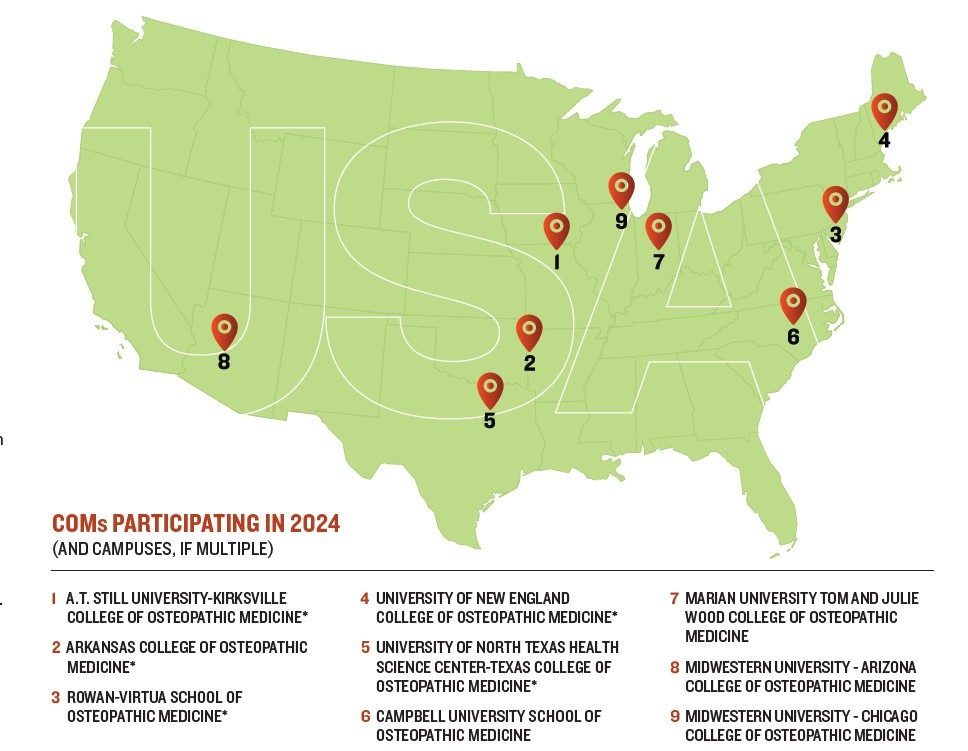
DO Student Feedback
COM Feedback
C3DO Phase 2
Learn about C3DO Phase 2 from members of participating COMs.
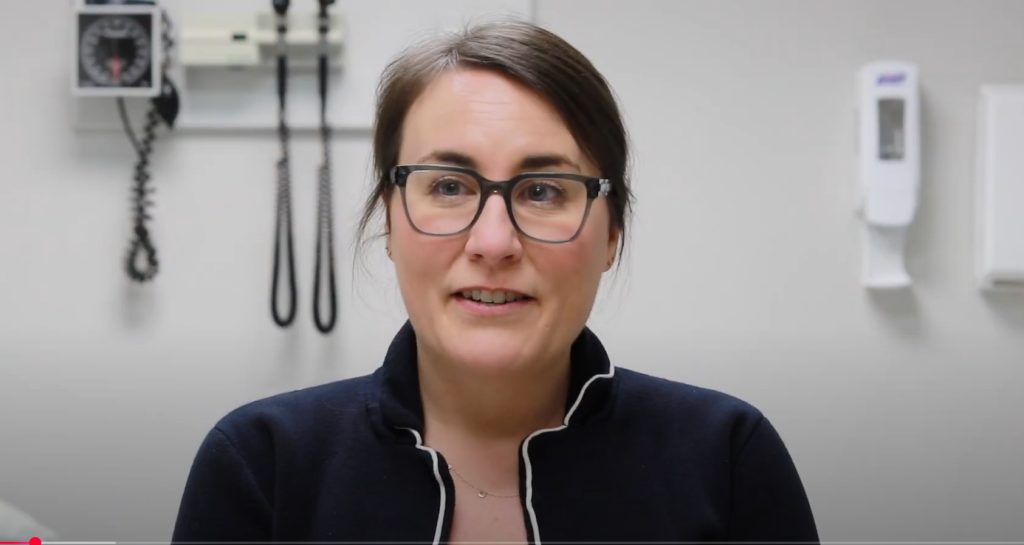

Innovate to Enhance Value for Test-Takers and Other Stakeholders
Assessment and Technology
Exploring the future of osteopathically distinctive assessment through technology
While the NBOME spent much of 2024 celebrating its past, the organization also cast an eye toward the future, exploring the use of new and emerging technologies to streamline processes, improve productivity, and continue to create fair, reliable, and valid assessments.
For its staff, the NBOME deployed numerous technology modernization strategies, including updated conference spaces and collaboration systems, implementation of multi-factor authentication for enhanced security, and a robust cybersecurity training program for employees.
The NBOME also installed a new phone system that, when integrated with the NBOME’s Help Desk ticketing system, ensured a smoother experience for resolving client and candidate issues. In addition, a new process was implemented to transmit COMLEX-USA scores to ERAS and ResidencyCAS residency application platforms. Improvements and consolidations to the NBOME data center resulted in better system uptime and more dependable operation of critical applications such as the NBOME Portal and SAS-Enterprise.
The NBOME Learning Center continued to make improvements to courses and the interface for better functionality and a more user-friendly experience. One such project was the launch of the Mindful Language and Fairness in Item Writing: Incorporating Diversity, Equity, and Inclusion Principles course for item writers. Created in conjunction with the NBOME National Faculty, 98 percent of users said it will improve their item writing skills.
On November 11, the NBOME launched an updated NBOME.org. The newly designed site incorporates a more advanced infrastructure, gives the site a fresh new look with streamlined navigation, and promotes an improved user experience. The yearlong process included every department within the NBOME and brought in feedback from external stakeholders including osteopathic medical students and residents, faculty and leadership at schools and colleges of osteopathic medicine, licensure experts, and members of the NBOME Board of Directors and National Faculty.
Exploring AI in assessment
John L. Goudreau, DO, PhD, Board secretary-treasurer and Chair of the AI Task Force, discusses the NBOME’s work with AI in 2024.

The NBOME and artificial intelligence
While the NBOME has previously conducted research on the use of artificial intelligence (AI) in areas such as natural language processing, machine learning, and automated test assembly, in 2024 the organization focused on how AI might be used to streamline work processes internally and potentially create new test item content. The AI Task Force was created at the end of 2023 to explore whether AI could be used for business operations or to assess physician competency through fair, valid, and reliable examinations.
The NBOME began working with SparkAI, a tech startup that helps organizations understand how to best utilize AI for their specific needs, to assess the NBOME’s capabilities in test content generation. Items were generated using eight AI models, which were reviewed by NBOME DOs, AI Task Force members, and members of the National Faculty. The NBOME is currently analyzing results of the pilot to select initial model(s) for further exploration. While the technology is not yet ready for use in generating test questions, the NBOME continues to explore whether it could be an option in the future.
The NBOME also explored the possible benefits of AI for business operations. As an example, the NBOME conducted a pilot study using ChatGPT and Microsoft Copilot for administrative purposes and identified secure ways to apply these tools to daily staff work.
The Task Force developed a series of recommendations on the use of AI, including creating policies and best practices for National Faculty and others in examination item development and advising on how to mitigate potential risks of using AI, such as ethical and legal implications that may arise. The Task Force presented its recommendations to the Board of Directors at its annual meeting in December 2024.
CATALYST
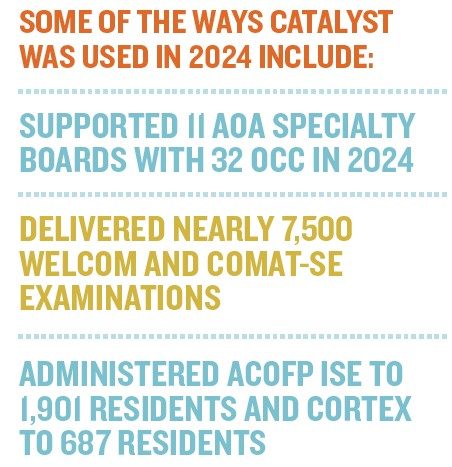
CATALYST is a dynamic learning and assessment platform developed by the NBOME that provides immediate performance feedback and educational resources after each question. This approach helps candidates reduce knowledge gaps. Assessments can be taken either in part or in whole at a candidate’s own pace. CATALYST houses the WelCOM and COMAT Self Evaluation assessments as well as many of the osteopathic continuous certification (OCC) examinations administered by the American Osteopathic Association (AOA).
Research
Researchers at the NBOME conducted 44 presentations at various professional conferences and meetings across osteopathic medicine and the entire house of medicine. The NBOME also authored/co-authored several publications in peer-reviewed journals. Selected publications include:
- “The Predictive Validity of MCAT Scores and Undergraduate GPA for COMLEX-USA Licensure Exam Performance of Students Enrolled in Osteopathic Medical Schools.” Journal of Osteopathic Medicine. July 2024.
- “A Validity Study of COMLEX-USA Level 3 with New Test Design.” Journal of Osteopathic Medicine. March 2024.
- “Test Security and the Pandemic: Comparison of Test Center and Online Proctor Delivery Modalities.” Applied Psychological Measurement. April 2024.
- “Assessing the Fundamental Clinical Skills of Osteopathic Medical Students.” Submitted to the Journal of Osteopathic Medicine. In press.
Other research topics included the Phase 1 results of the Core Competency Capstone for DOs; machine learning scoring on short-answer items; language processing in analyzing candidate comments; natural language processing in analyzing candidate comments; the relationships between COMAT Foundational Biomedical Sciences and COMLEX-USA scores; the impact of COVID-19 pandemic on residents; COMAT Self Evaluation; the impact of Pass/Fail score reporting on performance and student stress; the power of NBOME assessments; and advocacy for DO students and their credentials in GME applications.
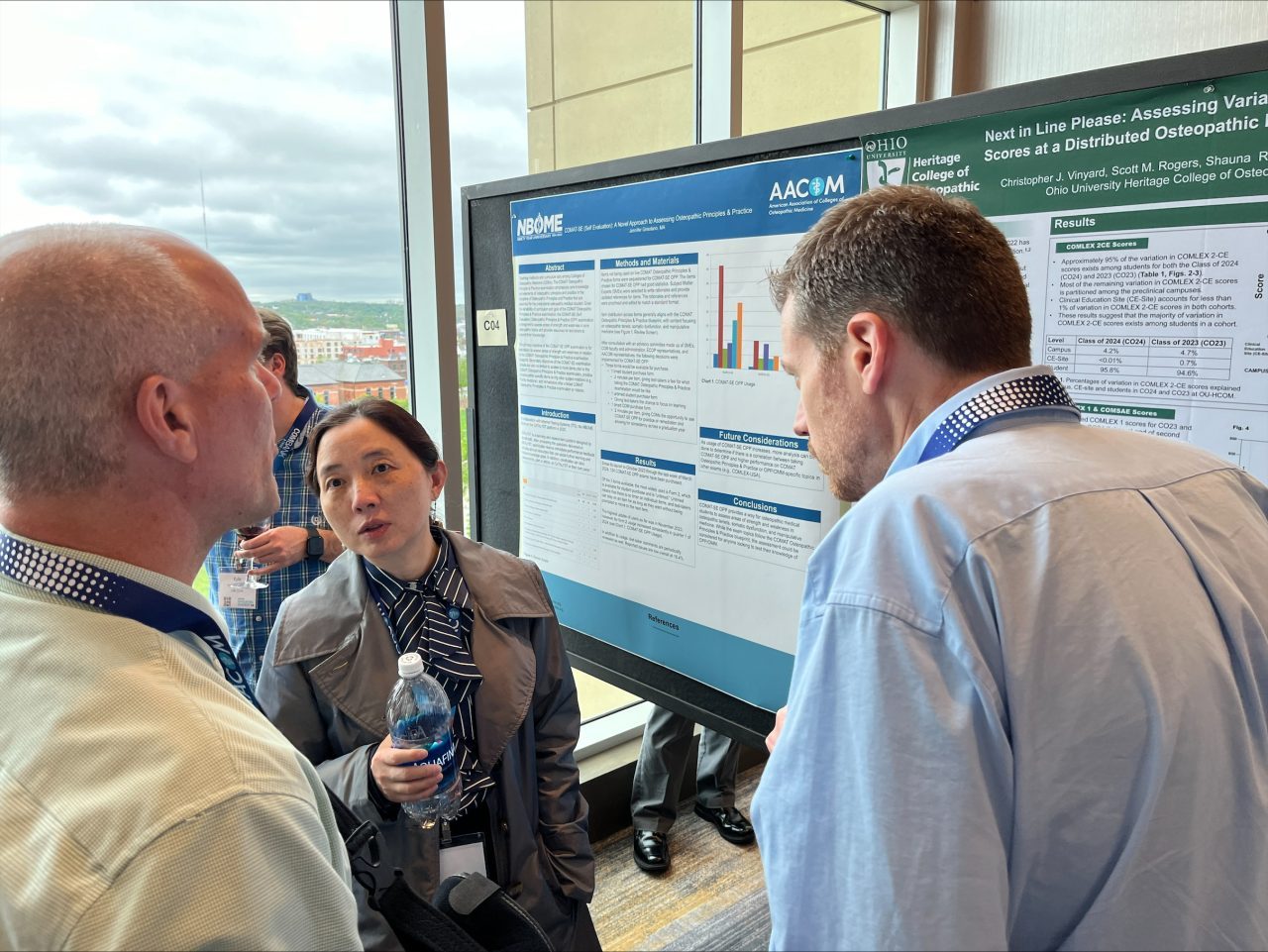
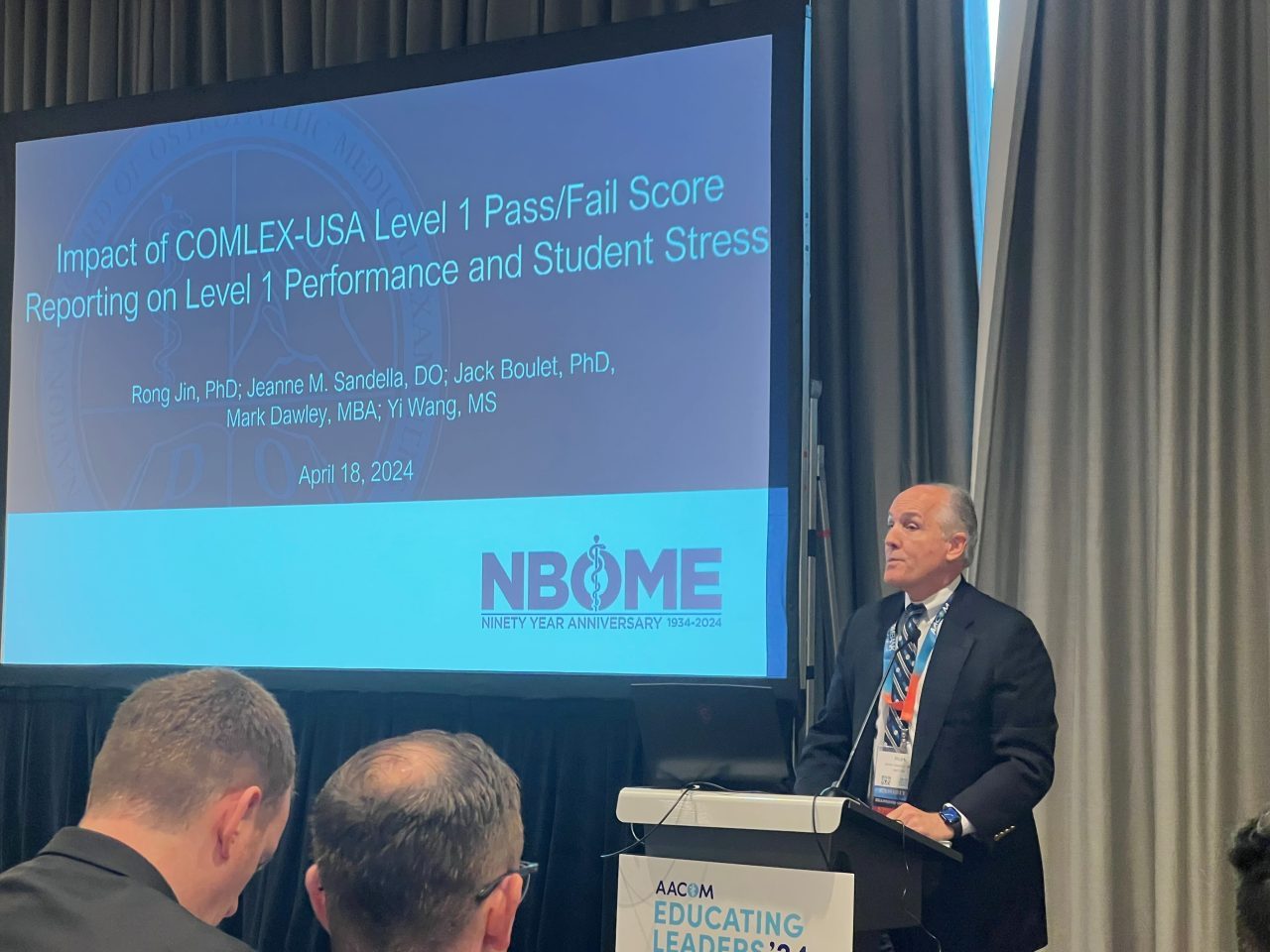
Manuscripts are in development that investigate preparation, stress and performance on COMLEX-USA Level 1 following the transition to pass/fail score reporting and COMLEX-USA as a reliable predictor of performance on the American Board of Surgery In-training examination and the American Board of Surgery Qualifying Examination.
Finance
The NBOME continues to carefully steward resources directed to its mission and to benefit our many stakeholders. Growth in candidate numbers across the NBOME’s largest assessment programs and careful expense management yielded good financial performance from operations for 2024. The operating gains were further supported by a conservatively invested equity and bond market portfolio.

Investing in Enhancements
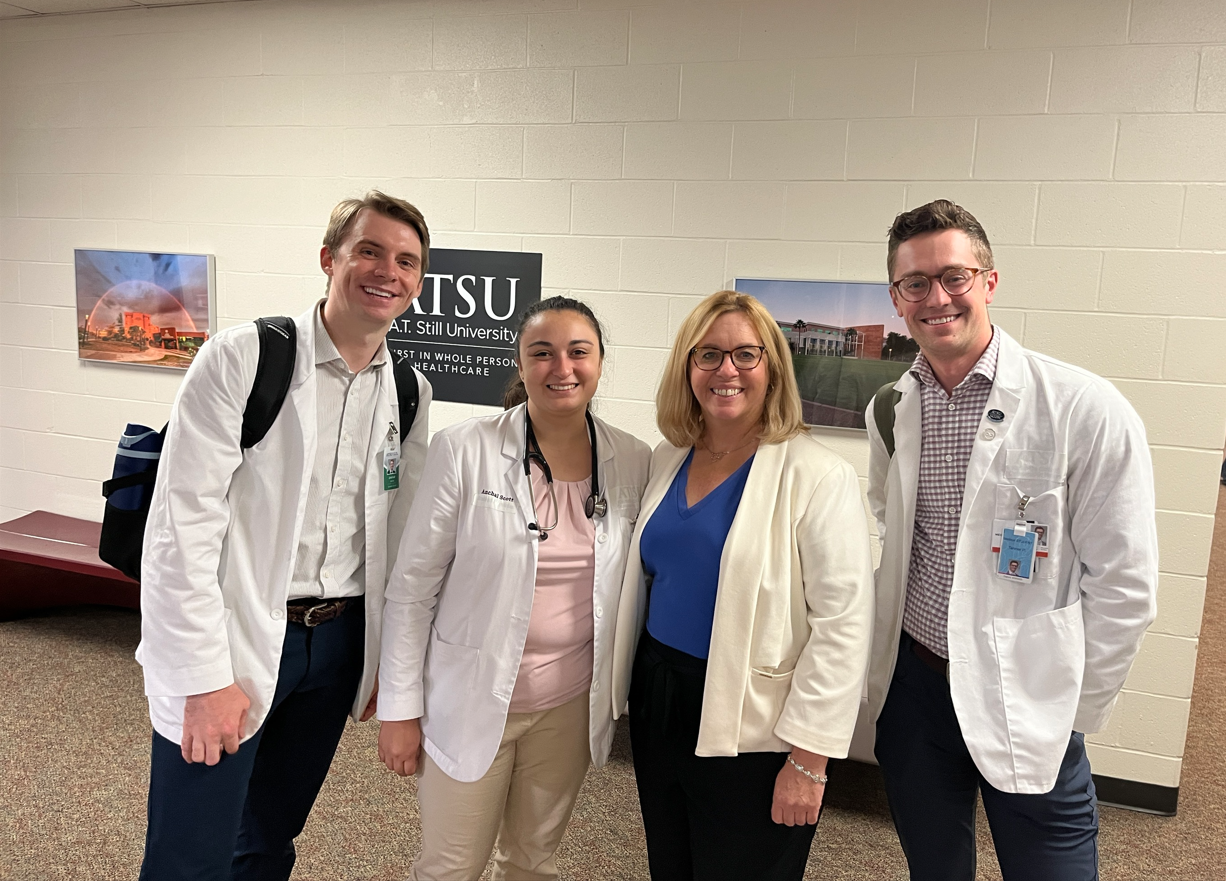
The NBOME continued to invest in enhanced technologies with the goal of meeting our strategic priority of enhancing the test-taking experience for stakeholders.
The investment into Phase 2 of the C3DO pilot in 2024 provided encouraging data in the pursuit of a COM-based national assessment of osteopathic clinical skills. This included grants to five participating institutions in Phase 2. The NBOME also provided considerable in-kind contributions supporting Phase 2 of the pilot. Learn more about these COMs and Phase 2 in the “Test What Matters” section of this report.
Investing in the Profession
In 2024, the NBOME served as the diamond sponsor for the American Association of Colleges of Osteopathic Medicine Educating Leaders Annual Conference and as a sponsor of the Federation of State Medical Boards Annual Meeting, supporting continuous learning across the osteopathic and healthcare professions. The NBOME also sponsored the A.T. Still Fit for Life Fun Run 2024, which supports the Advocates for the American Osteopathic Association, a non-profit aimed at championing osteopathic students, residents, physicians, and the osteopathic profession at-large.
The NBOME also contributed more than 425 hours toward examination development, including item writing and editing, case development, and additional faculty development.
Investing in DO Students and Residents
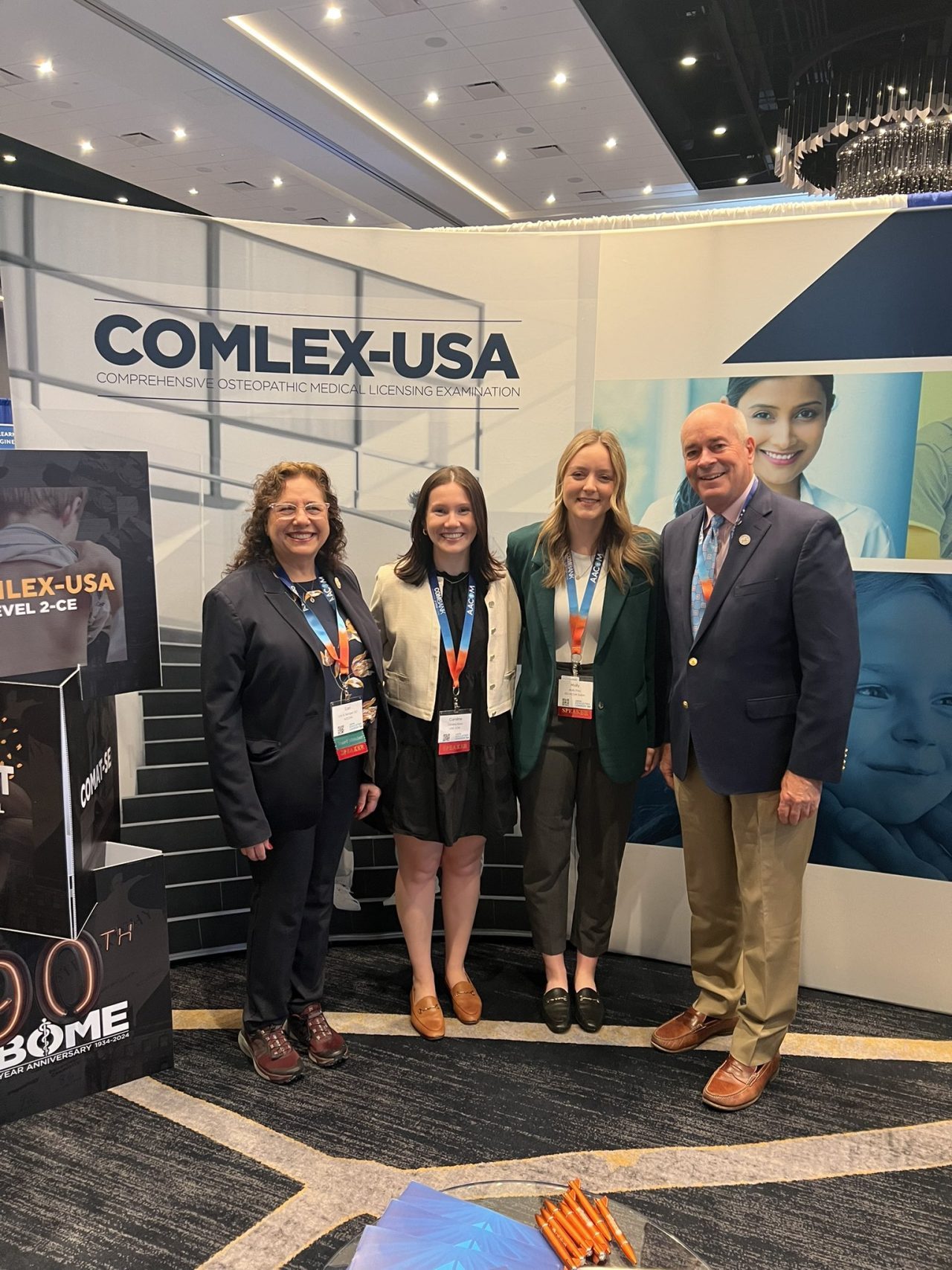
In 2024, the NBOME further supported osteopathic medical students and resident scholarships through donations and support of the American Osteopathic Foundation. The NBOME Candidate Assistance Fund aided numerous COMLEX-USA candidates who experienced extraordinary financial hardships related to taking their exams. The most common example was added expenses for weather-related COMLEX-USA cancellations.
Investing in a Better Physician Workforce
The NBOME continues to save state governments and taxpayers millions of dollars annually through its nationally trusted standardized assessment program for osteopathic medicine. Without such an exam, state funds would be required to replicate efforts for valid, reliable, defensible, and fair assessments of physician licensure. Through NBOME assessments, such as COMLEX-USA, patients are assured that their osteopathic physician has met a national standard of competency to practice osteopathic medicine.

Prioritize Wellbeing
Wellness for the NBOME and its Surrounding Communities
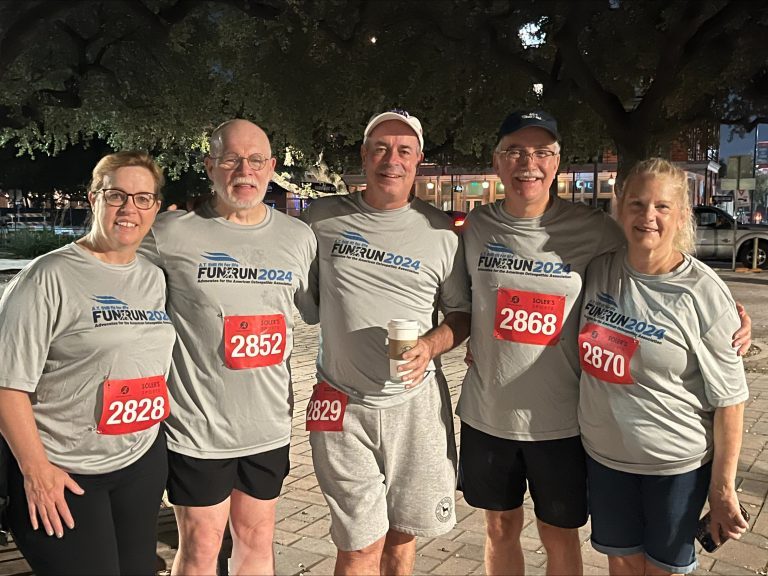
The NBOME provided numerous opportunities for employee fellowship during 2024. Activities included yoga sessions, potlucks, and quarterly employee recognition meetings to highlight the contributions and advancement of NBOME staff members. In addition, the NBOME hosted a six-week Wellness Challenge, encouraging employees to get in as many steps as possible during the contest.

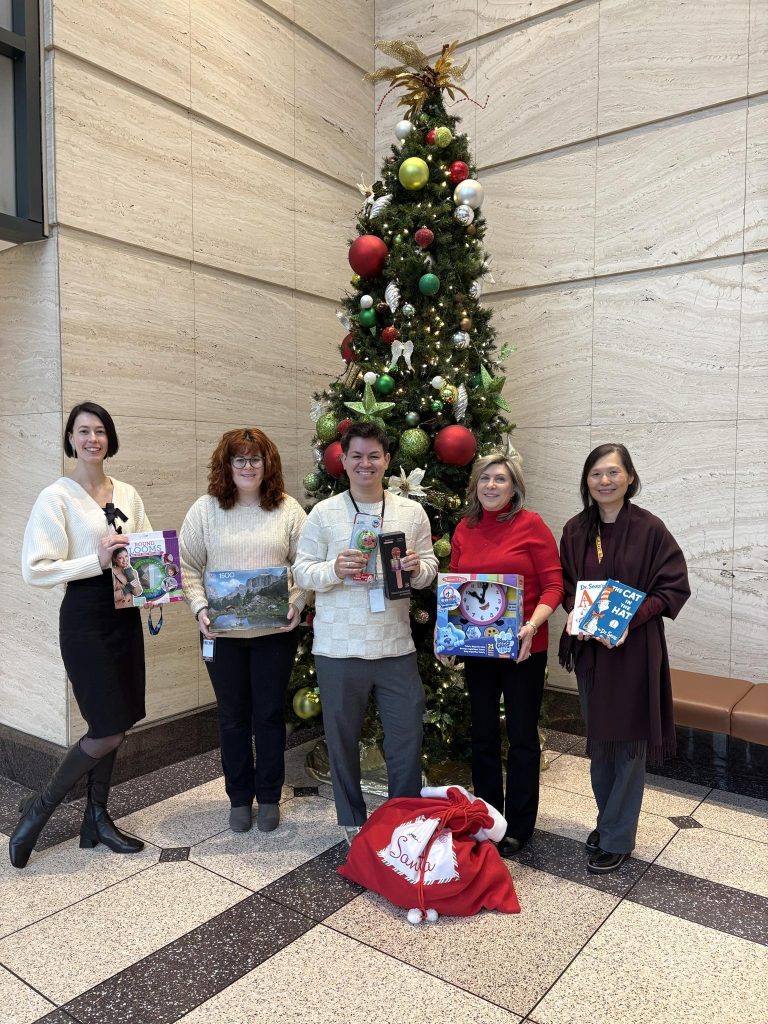

Staff also celebrated the diversity of the NBOME and of the osteopathic profession through observances, education, and celebrations for holidays including Black History Month, Pride Month, Juneteenth, Lunar New Year, Asian American and Pacific Islander Heritage Month, and Latinx/Hispanic Heritage Month.
The NBOME was also recognized by the governors of Illinois and Pennsylvania for its contributions to communities in Chicago, Philadelphia, and beyond.
Wellness for Candidates and the Profession
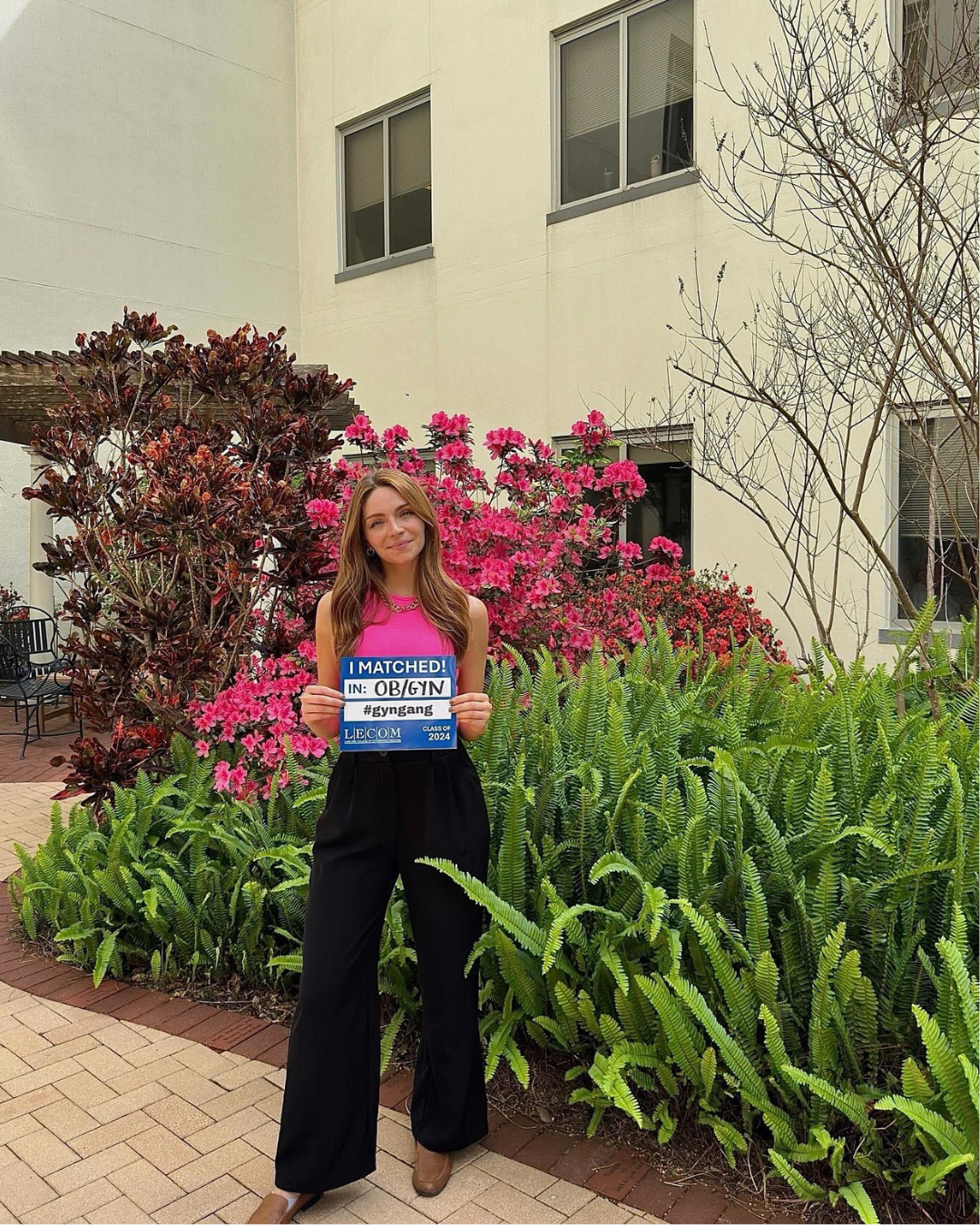
A particular focus of the NBOME is to serve as a wellness resource for candidates as they prepare for the high-stakes COMLEX-USA exams. The new “Resources for Osteopathic Students and Residents” section of NBOME.org was designed to give all COMLEX-USA candidates the information and resources they need to succeed. This includes the “Stories from the Road” and “Candidate Wellness” blog series, which provides tips and advice on navigating the Road to DO Licensure to osteopathic students and residents from their peers.
Each year the NBOME features a Valentine’s Day-centered social media campaign designed to highlight the ways osteopathic medical students show love to themselves. In 2024, the theme was, “How do you treat yourself?” and the NBOME received more than 730 responses. That information was shared on the NBOME’s social media for other students.
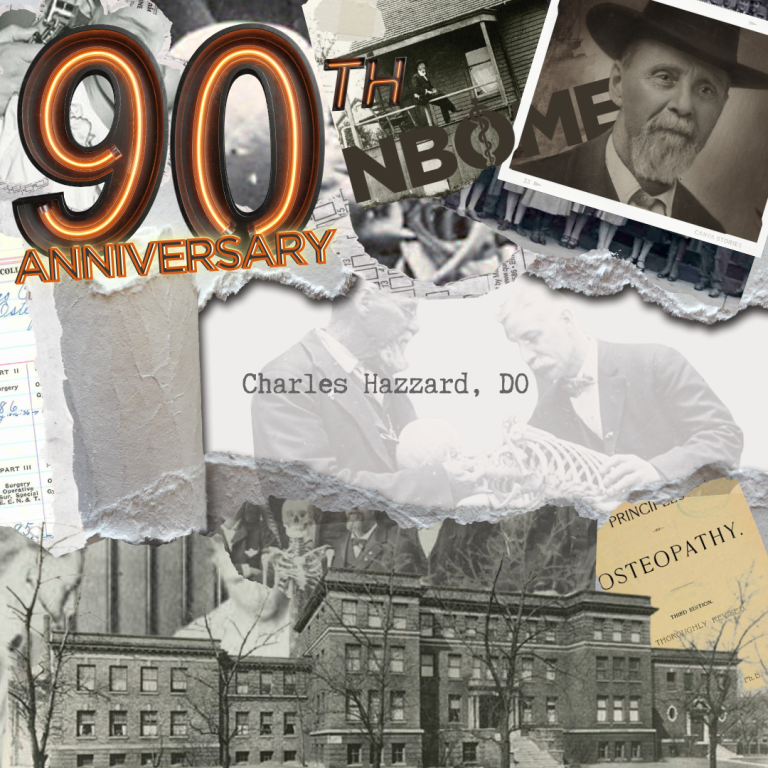
In July, the NBOME held a special social media contest for its 90th anniversary, encouraging osteopathic medical students to visit the website to learn more about the NBOME history and answer trivia questions. Winners received a free COMAT Self-Evaluation examination, providing yet another tool for candidate learning.

In 2024, the NBOME was named a Change Maker by the National Academy of Medicine for the NBOME’s commitment to DO wellbeing.
In addition to celebrating its 90th anniversary, the NBOME joined in celebrating and honoring the 150th anniversary of osteopathic medicine, led by the American Osteopathic Association. In part, the NBOME contributed to American Osteopathic Foundation scholarships that go to support osteopathic medical students.
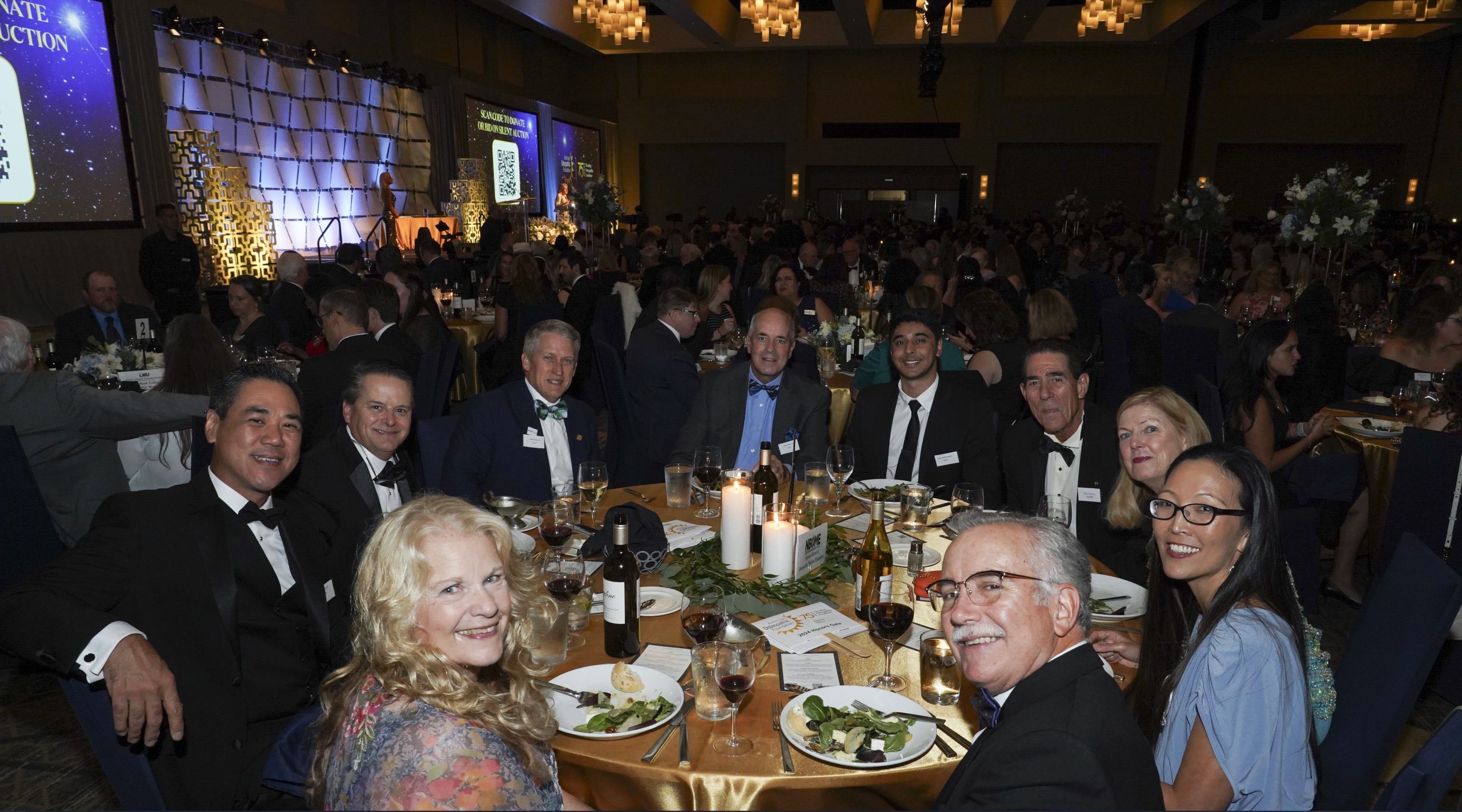
Enrich Mission-aligned Partnerships
Education and Advocacy
In 2024, two medical organizations came out in support of the equivalency of COMLEX-USA in residency applications for osteopathic medical students: the Alliance for Academic Internal Medicine (AAIM) and the Texas Medical Association. Both groups encouraged fair and equivalent weight of COMLEX-USA for osteopathic (DO) applicants when licensing exams are required for application.
“As a member of the Texas Medical Association Academic Subcommittee that supported this resolution, I am proud of our state for taking this bold action towards ensuring parity for osteopathic students as they pursue their residency training,” said NBOME Board Member Sajid A. Surve, DO.
The NBOME and the Alliance for Academic Internal Medicine
AAIM President and CEO Polly E. Parsons, MD, discusses the AAIM consensus statement and the impact DOs have on internal medicine.
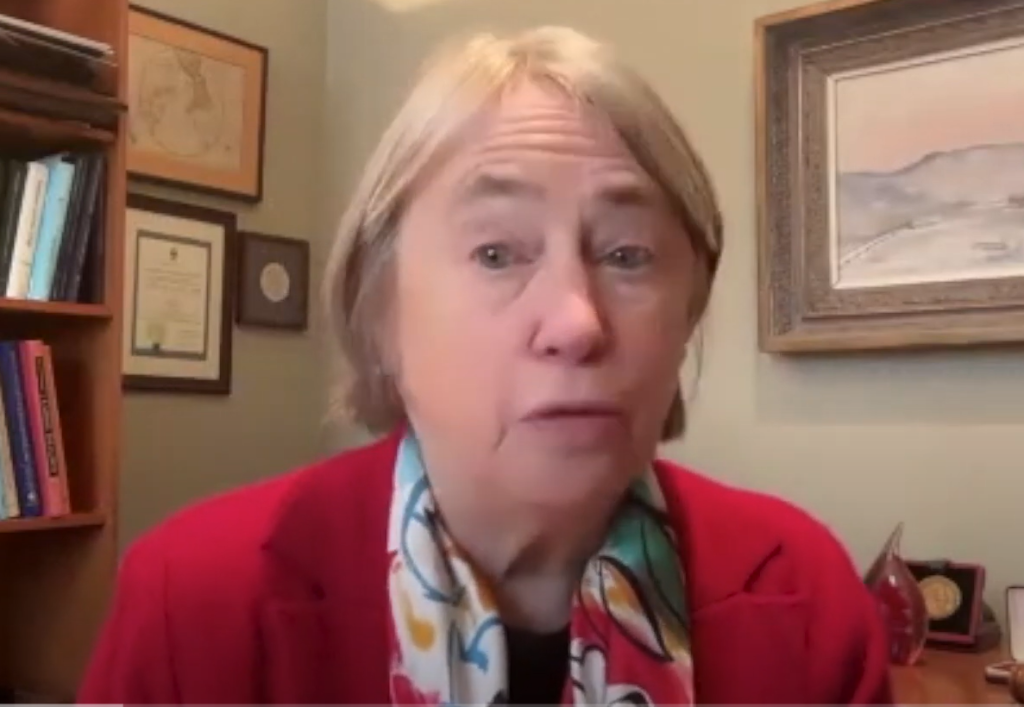
These organizations join eight specialty organizations that have publicly stated their commitment to holistic review of osteopathic medical applicants for residency.
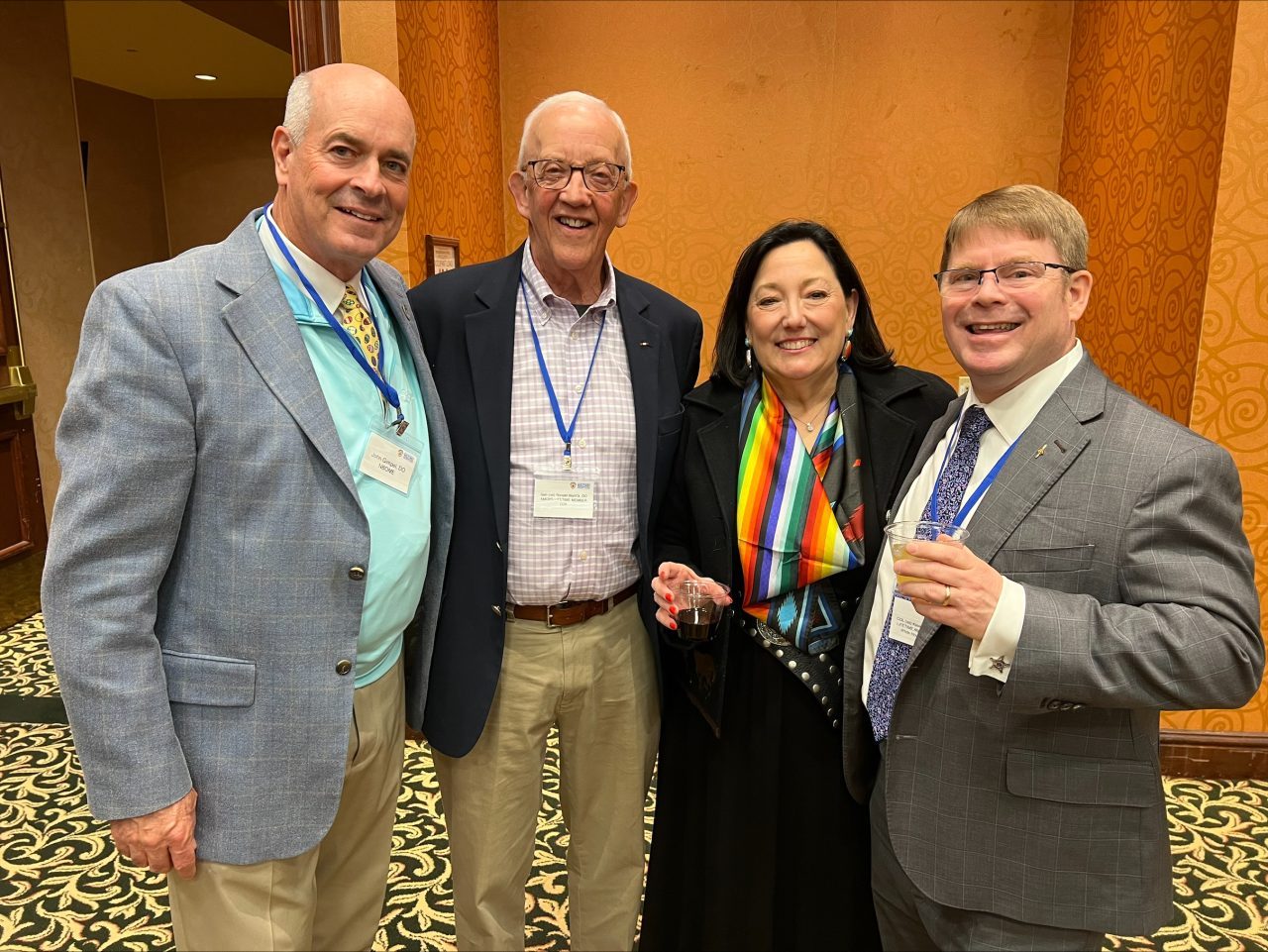
The NBOME Advocacy team reached out to over 250 residency and visiting student program leaders in 2024 to inform them about DO applicants and their COMLEX-USA credential. This is a continued effort to encourage groups to consider COMLEX-USA equivalently and to maintain accurate information about program requirements on their websites and FREIDA. As a result of this outreach, many have changed or updated their information to show parity for DO applicants.
In addition to its own outreach, the NBOME partnered with organizations such as Central App and Liaison International to ensure a smooth application process for students interested in obstetrics and gynecology, anesthesiology, and plastic surgery programs. The NBOME is also a data partner for the American Association of Medical College Residency Explorer tool, which was enhanced in 2024 to allow students the ability to download comprehensive program data and compare programs and their application and interview information.
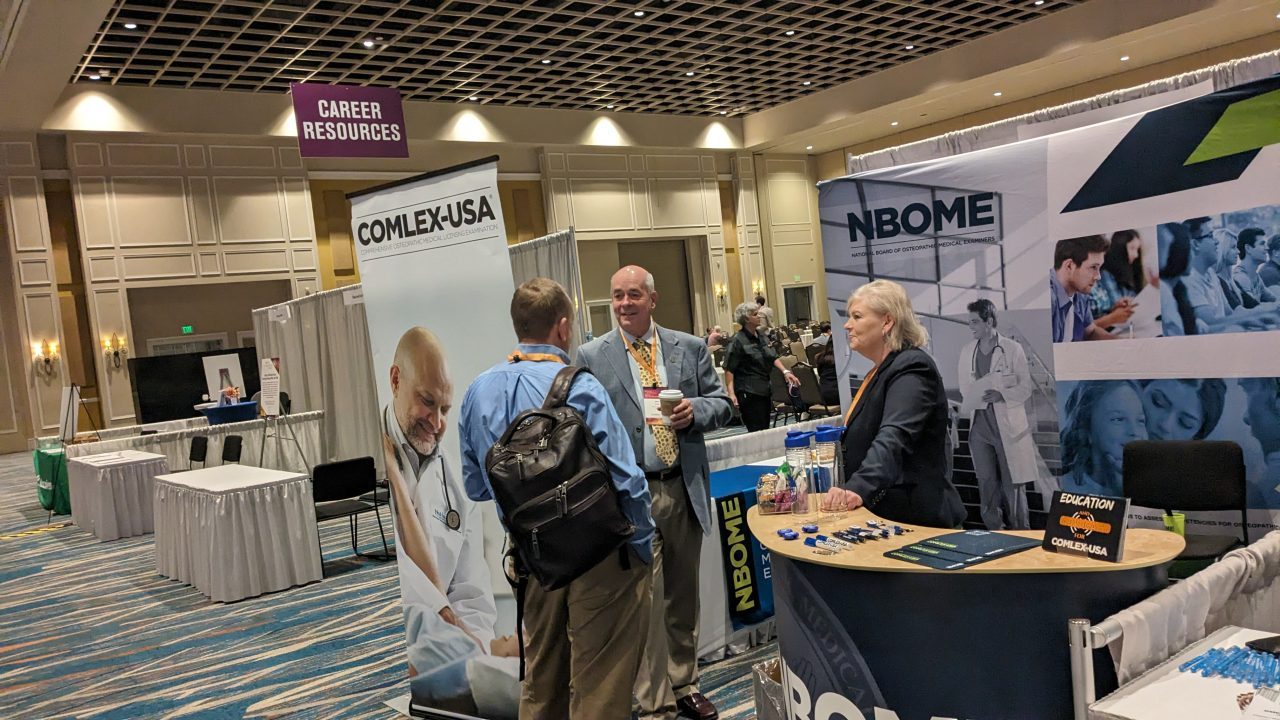
COM Visits
In 2024, the NBOME visited with osteopathic students, faculty, and staff at more than 22 schools and colleges of osteopathic medicine (COMs), either in person or virtually. These visits provide a unique opportunity for NBOME stakeholders to give feedback directly to leadership and have their questions answered in real-time. The NBOME also conducts item writing workshops for faculty development, either in conjunction with these visits or as a separate event.
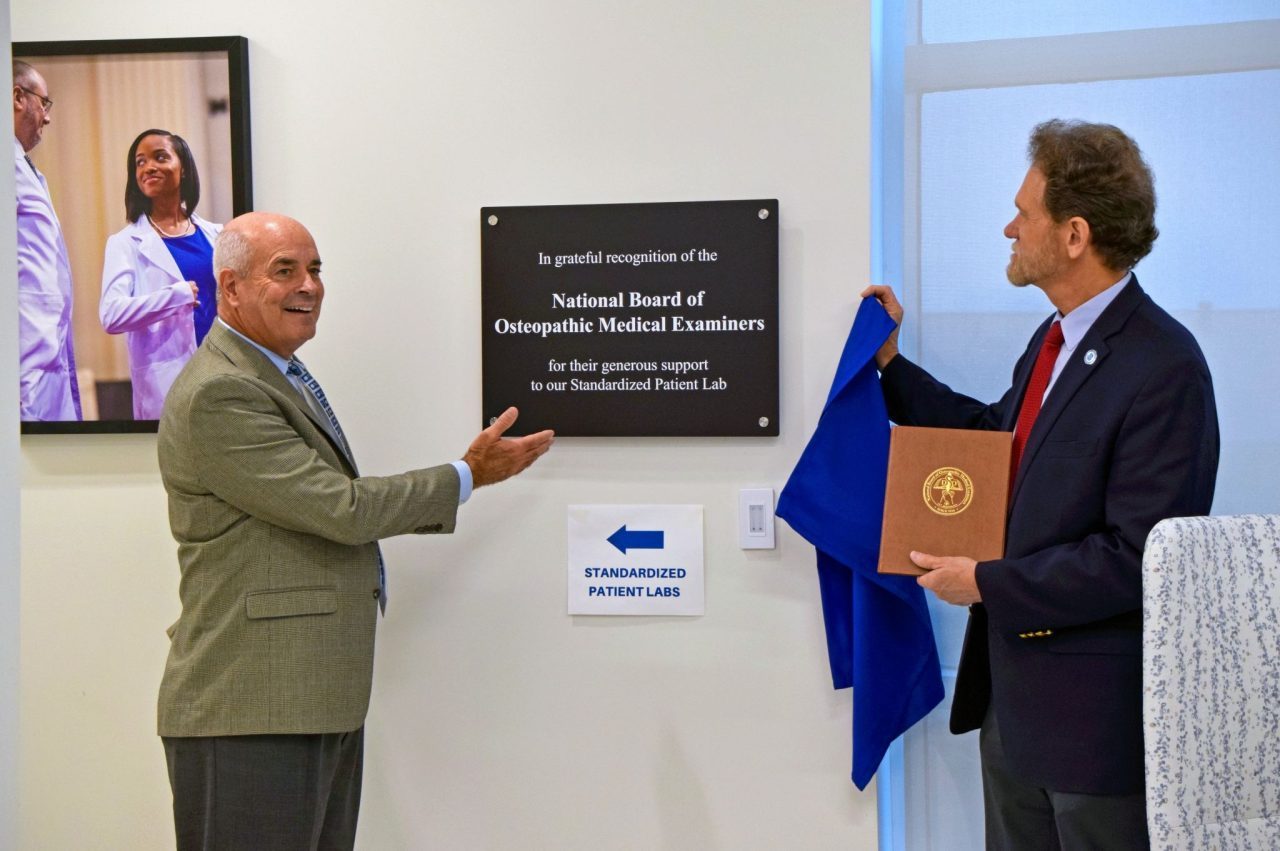
During his inaugural visit to the Baptist University College of Osteopathic Medicine (BUCOM), NBOME President and CEO John R. Gimpel, DO, MEd, was presented with a plaque in gratitude for the NBOME’s donation of clinical skills equipment to BUCOM from the former National Center for Clinical Skills Testing. Gimpel also made an inaugural visit to the Orlando College of Osteopathic Medicine and visited the Des Moines University College of Osteopathic Medicine’s new campus, both in March.
In April 2024, Gimpel and Vice President for Collaborative Assessment Jinghua Liu, PhD, MBA, MEd, attended an unveiling of the Wall of Deans while at the Rowan-Virtua School of Osteopathic Medicine Stratford campus. The new wall honored Emeritus Dean Thomas A. Cavalieri, DO, who served the NBOME in many capacities, including as a former Board President and Board Chair. In 2019, he was honored by the NBOME with its highest honor, the Santucci Award.
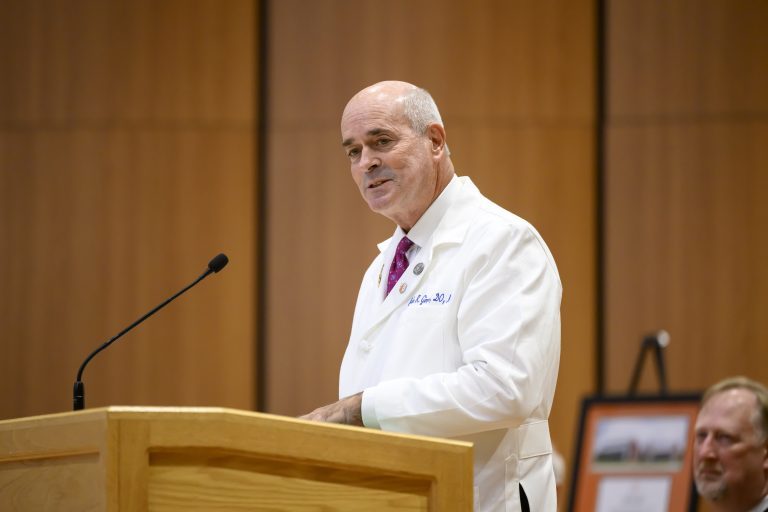
During his visit to the Campbell University Jerry M. Wallace School of Osteopathic Medicine (CUSOM) in October, Gimpel was invited to give the keynote address to the DO Class of 2028 White Coat Ceremony.
“I invite you to think of the white coat we put on today, and the oath you recite for the very first time, as symbolic of the fabric connecting you to 150 years of osteopathic physicians,” Gimpel told the students.
CUSOM Dean and NBOME Board member Brian A. Kessler, DO, welcomed Gimpel at the ceremony and called him “an influential advocate for health care reform.”

2024 Calendar Year COM Visits
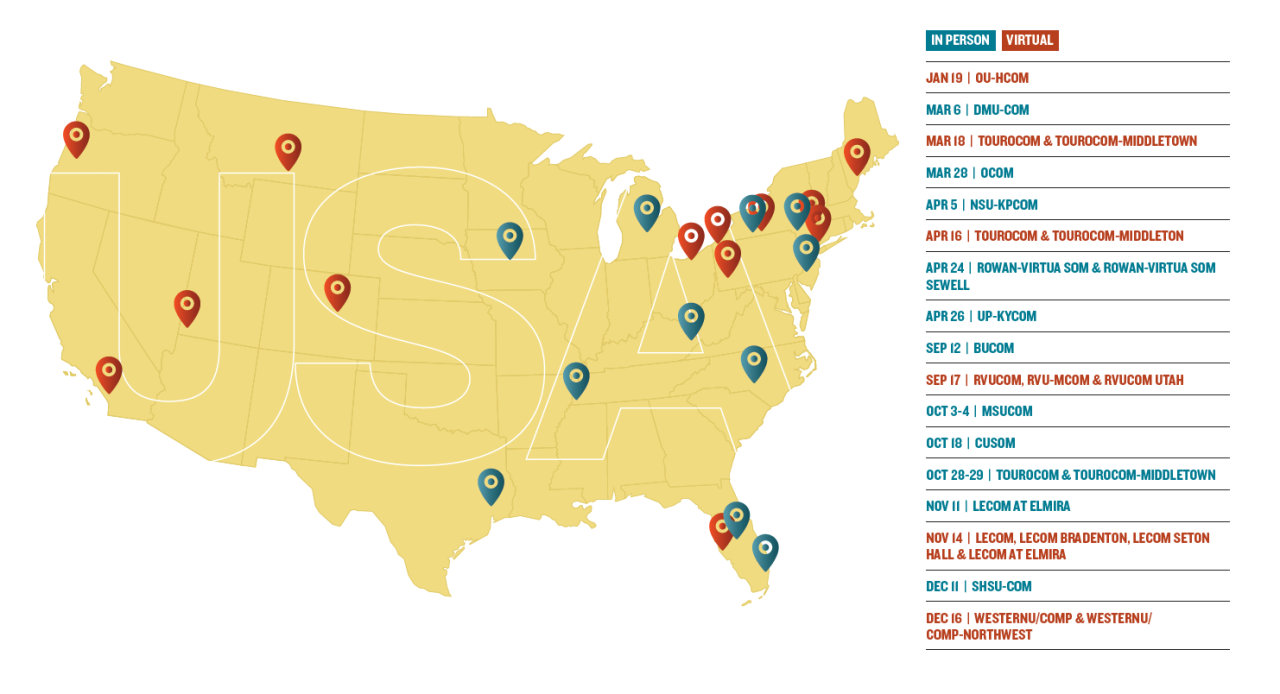
Feedback from 2024 COM Visits
Osteopathic Medical Students
COM Leadership
Osteopathic Medical Students
The NBOME regularly works with student groups such as the Council of Osteopathic Student Government Presidents and the Student Osteopathic Medical Association to answer questions and gather important feedback on NBOME assessment tools and resources. Representatives from these groups serve on the NBOME Liaison Committee as well.
Feedback from osteopathic medical students was instrumental in the development of the new NBOME.org, to determine how the website could better serve their needs. In addition, feedback helped with improving the student experience in the Core Competency Capstone for DOs pilot. This included improvements to timing of patient encounters and the addition of a video sample patient encounter with post-encounter questions to help them understand the assessment design.
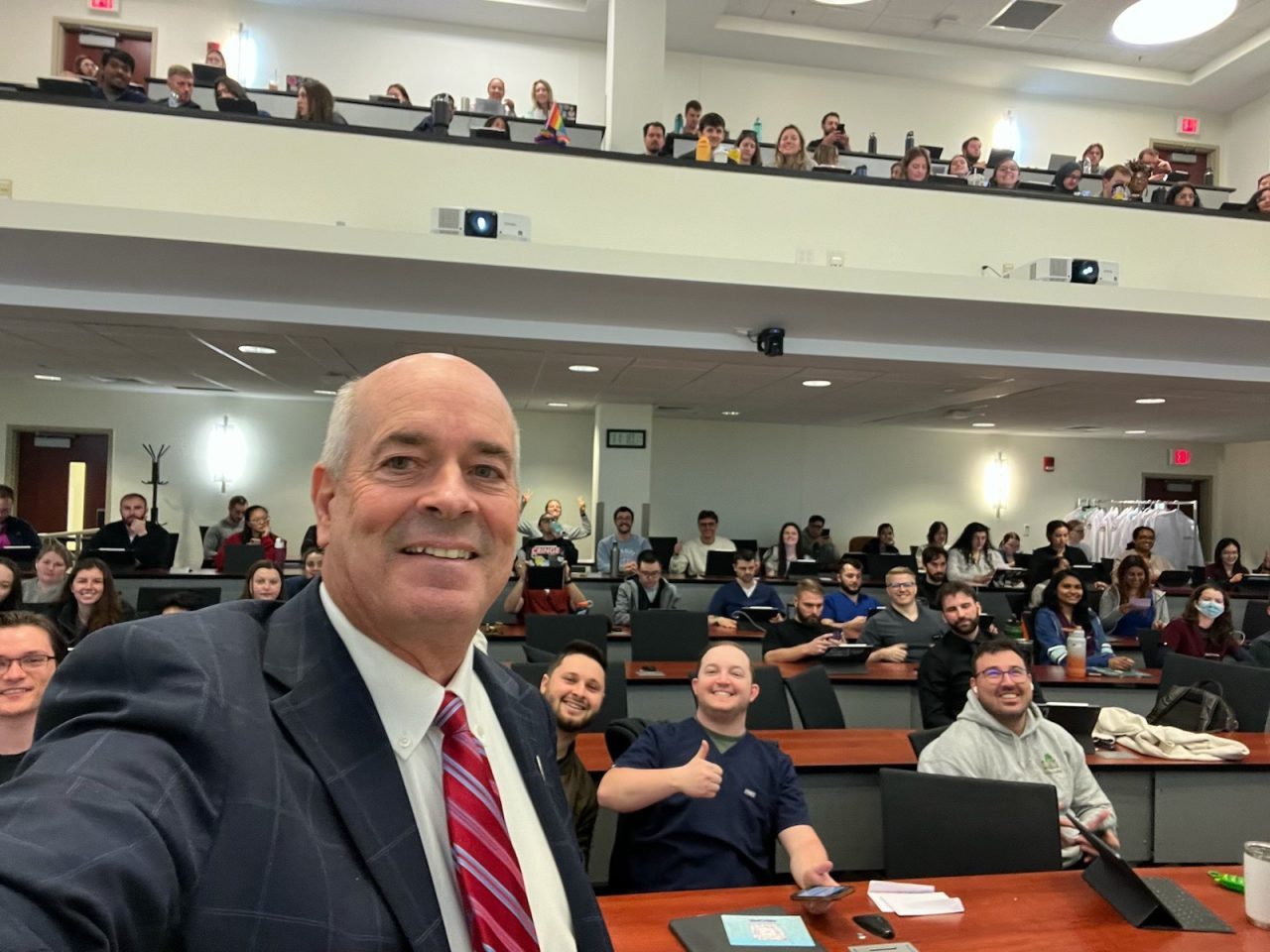
Feedback was also considered when the NBOME decided to publish COMLEX-USA examination dates and score release dates even earlier, to assist with scheduling and planning during an already hectic time for many students.
Further, student input helped the NBOME prioritize the release of three new Clinical Subject areas for COMAT Self Evaluation: family medicine, internal medicine, and pediatrics, and COMSAE answer keys were also released for students based on their feedback.
Much of the students’ opinions was garnered through the Student Experience Panel (SEP), which comprises a diverse group of osteopathic students, meets throughout the year, and provides a vital way for the NBOME to hear about their experiences first hand.
In November, SEP member Sydney Moriarty, OMS-IV, collaborated on a panel at the American Association of Medical Colleges annual meeting with members of the NBOME and its peer organizations. She provided an osteopathic medical student’s perspective on the effects of pass/fail score reporting for COMLEX-USA Level 1.
Student Experience Panel 2024
Meet some members of the Student Experience Panel and learn why they wanted to join.
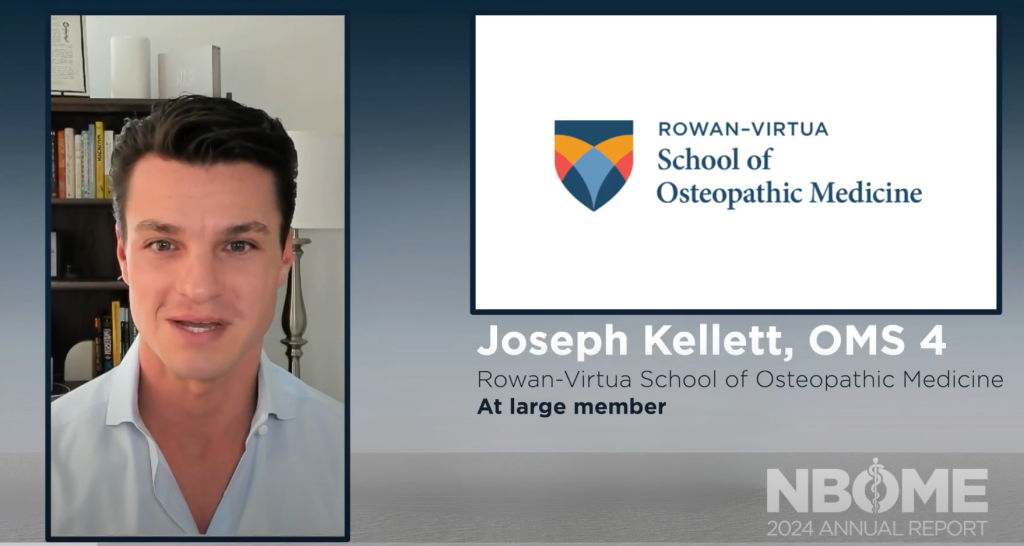
Client Organizations
The NBOME partners with numerous osteopathic medical and related healthcare organizations to develop, administer, and manage assessments that ensure the competency of osteopathic physicians and other healthcare professionals.
In 2024, the NBOME administered nearly 10,000 examinations for various osteopathic specialty board organizations—a 35 percent increase over 2023—and administered 146 oral examinations.
